#his struggle is still a classic lawful vs good one
Text
The secondary D&D group I complained about before got worse, and I just remembered one of the highlights was the DM's absolutely terrible take on alignment.
He's not strict about it, which is good, I guess, but his rationale is that Lawful Good = your character's idea of what is good is entirely determined by the law, Chaotic Good = compelled to immediately act on noble impulses, no matter how stupid, while his takes on True Neutral and the evil alignments were fairly normal.
I've always gone with "Lawful" not as "goodness is defined by the law"—which could very easily just end up at functional Lawful Evil—but as a shorthand for lawful characters' drive towards systems of order, even if it's not uncritical acceptance of any system of order the character happens to encounter. There's a reason that the Lawful Evil stereotype is "villain with a code" and not "villain who obeys every law ever," but idk, some people seem unwilling to extend the more functional version of Lawful in Lawful Evil to Lawful Good. Like ... no, a Lawful Good character is a genuinely good person by definition, and no more restricted by every legal code in the world than a Lawful Evil character would be.
I think a lot of interesting character dynamics are lost in "goodness is the law if you're Lawful Good" rather than "Lawful Good characters are driven by noble motives and by adherence to a systematized order or code." If it's the intersection of Lawful and Good and not Lawful = Good, then the lawful and good motives might reinforce each other at times, but can also collide in interesting ways.
And no, Chaotic Good =/= Chaotic Stupid.
#/grump#anghraine babbles#long post#alignment#anghraine rants#you can rebel against bad literal laws and still be lawful good bc you adhere to a different system of order#like. cassian disobeying orders from the rebellion in rogue one bc they're contextually wrong is a super big deal for him#and actively difficult to do#but he doesn't care about disobeying imperial laws obviously#his struggle is still a classic lawful vs good one#even if they lived (which they did!! ahem) jyn is never going to care about structure and orders the way that cassian does#anghraine's gaming
26 notes
·
View notes
Note
Thoughts on “Man and Superman” by Marv Wolfman?
Countless Superman origin stories, including one written and titled Superman: Year One by Frank Miller himself no less, and this is the only one that thought to copy the actual structure of Batman: Year One.
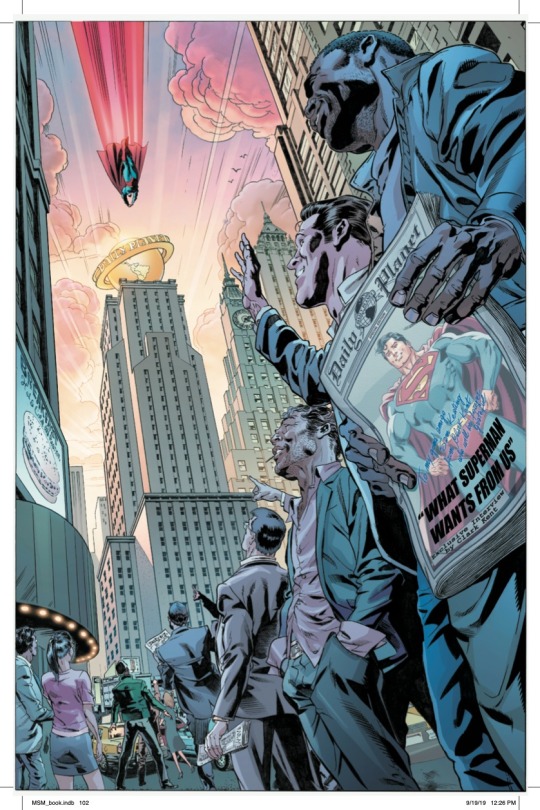
Four issues telling the story of Clark's first year in Metropolis, beginning in Metropolis from the first page. We see Clark arrive in Metropolis, struggle to get a job as a reporter with the major newspapers because he's a nobody from nowhere, wears a "proto-suit" until beginning to wear his classic outfit at the very end, botches his first few attempts at being a hero because he has no clue what he's doing, fall in love with Lois, and ultimately after much trial by fire, become the champion of Metropolis as Superman.
Familiar ground to be sure, culminating as it does in a confrontation with Lex Luthor where Superman promises he will always be around to foil Luthor's plans. If you're a hardcore Superman fan, much of this story will feel familiar to you. Wolfman outright says as much in his introduction, with the long delays this story suffered due to the series it was intended to release under being cancelled, causing similar ideas to be used in other stories. While I can't claim to know who Wolfman had in mind, I definitely saw similarities between his approach to Superman here and how Morrison rebooted him for the New 52.
Even then though, there are some fresh ideas and approaches to be found here that make this take stand out. First and foremost is their approach to the City of Metropolis itself.

This is not the clean Metropolis of Johns/Frank, or the high tech City of Tomorrow of Waid/Yu. Here, Metropolis is gritty, decaying, a City wholly rooted in the problems of today. An upcoming mayor election pits a right-wing candidate who wants to tackle crime with more police officers, vs. a left-wing candidate who wants to tackle the underlying roots of crime. The three janitors Clark works alongside have to work multiple jobs just to make ends meet, and are immigrants themselves also. A crime wave results in marital law, the curbing of civil rights, and the calling of the national guard "for the greater good". Newspapers Clark applies for tell him he needs to sensationalize his reporting more so the story will sell better. This is not a story with a wide-eyed view of what happens in the modern day when the kid from the countryside moves to the big city and tries to make it big. Despite being written in 2008. it could easily have been written today, a damning indictment of American society to be sure. Metropolis here feels real and fleshed out, and while my preference is for a Metropolis that embraces the freedom of being an entirely fictional creation, I appreciate how Wolfman digs into the human element via showing us the viewpoint of the citizens of Metropolis as Clark listens to them with superhearing, casting them as something of a Greek chorus reacting to the events of the story.
Of course not everything is perfect. Wolfman compares Clark becoming Superman to being a firefighter, a doctor, a soldier, and a cop at various points throughout the narrative. The first two I welcome and agree with. Later two however are extremely dicey, and although this is not a story that exempts our modern justice/policing system from a critical eye, (note that the main villain of the story in Lex endorses the right-wing "law and order" candidate to make sure you know which side the narrative supports) it still does not benefit Superman to have his uniform compared to that of a cop's.

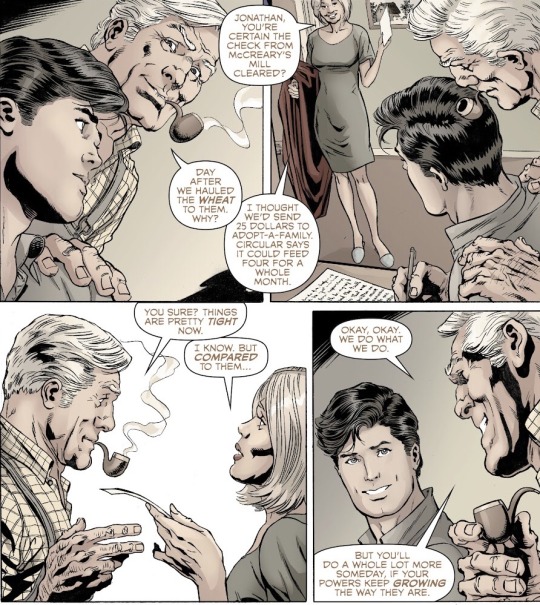
As a side note, I love that Clark is explicitly poor here. I love that he struggles to make ends meet, that he's working as a janitor while he tries to make his dream of being a journalist for a prestige news organization come true. Being a cub reporter struggling to get a job, he's not living in a penthouse in the center of Metropolis. Clark is flat out broke, and living in a crappy apartment in the slums of the city. It's an approach that Morrison and Morales used for their Superman reboot, and I support that approach wholeheartedly. Establishing that Clark spent his first few years living in the poorer areas of Metropolis does wonders to support his reputation as the "Champion of the Oppressed".
In flashbacks to his Smallville childhood we see that financial struggles were a factor for him growing up, with Martha wanting to donate money to help feed families in need, while Jonathan was concerned about how tight their own finances are before relenting and agreeing. Of the entire Justice League, Superman is the one who has the strongest claim to being the "working class hero", the blue collar amidst all the blue bloods and middle class suburbanites. Most origins brush over Clark's financial situation growing up, but this one is of the rare few which does not, and I think it's all the stronger for it. Especially so given that this origin is similar to Batman: Year One in that it's really a Year One story for two characters - Lex as well as Superman.
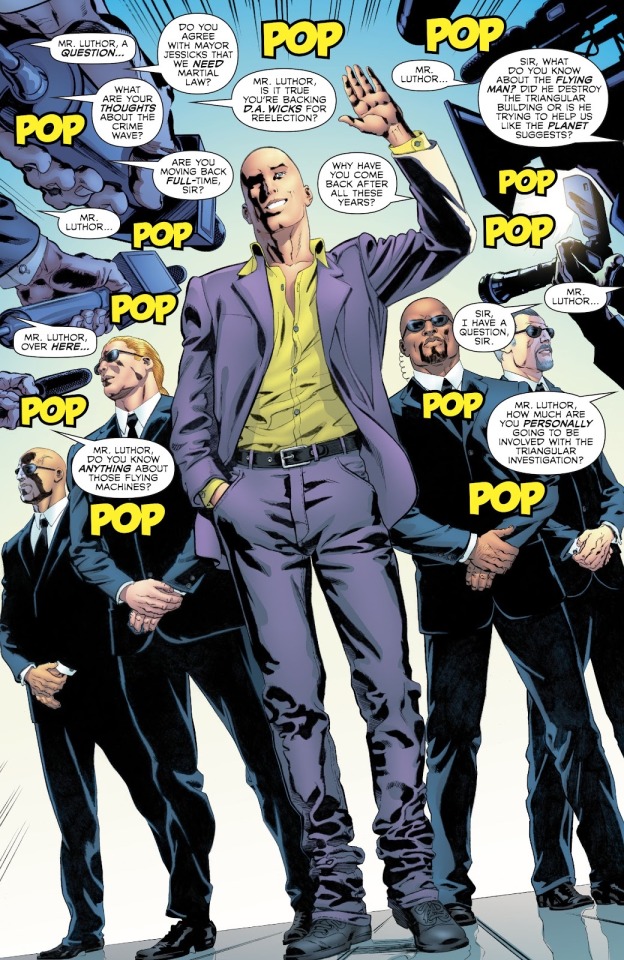
Pitting Superman against Luthor in his first year is old hat, but what I adore about this take specifically is how Lex is explicitly in the "Bruce Wayne" role. Like Bruce, Lex has been gone from Metropolis for multiple years, and makes his return with a plan for reshaping Metropolis in his own image. He's a ruthless monster, willing to kill 500 of his own employees as part of a false flag attack against his own corporate headquarters to garner public sympathy and support. Here the playboy billionaire with a secret agenda and a complete disregard for the law is the villain not the hero. While Wolfman doesn't have the time or pages to dive deep into the rivalry between the two, the class warfare aspect of the feud between Superman and Lex really stood out to me here. Clark lives and works alongside the "little people" and helps them out how he can, meanwhile Lex callously slaughters them in pursuit of his own self-interest.
In the end Lex immediately recognizes that Superman is going to be a watershed moment in history, and is determined to change the world back to when he was on top. I would love a "Year 2" story from Wolfman that skips ahead a bit and pits Lex and another villain against Superman. He has a great handle on the star players here in Clark, Lex, Lois, Perry, and the elder Kents. Give him the Waid treatment and let him build out his own pocket universe if that's something he'd be interested in doing.

Man and Superman has convinced me that if Wolfman had gotten the chance to reboot Superman after Crisis the way he wanted to, I believe the character would have fared far better during the Post-Crisis era. Perhaps it would not have taken the character as long as it did to start putting the Dark Knight Returns stooge interpretation behind him. If this is the only major work Castellini ever does on the character, then I tip my hat to him for a job well done. Not every artist can bring a level of grit and realism to Superman's world without compromising the character, but he managed to pull it off expertly.
26 notes
·
View notes
Text
I haven't been a movie nerd even ONCE on this account. Here's my top 10 movies in 2023
1. The Lord of the Rings (trilogy)
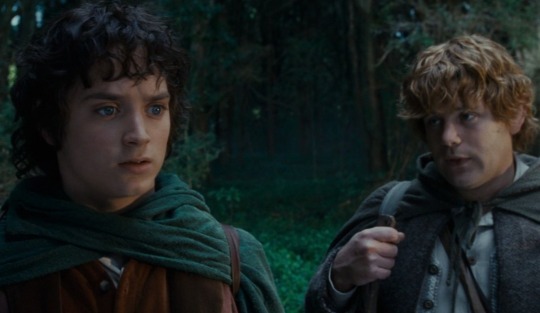
IT STILL COUNTS AS ONE
Can't go wrong here. There's fantasy, action scenes, friendship, romance, badass dialogue, comedy. There's refreshing masculinity where men are close friends, fight for each other, die for each other, kiss each other on the forehead, sing, etc. The Aragorn Arwen romance is sweet and isn't overblown, and the main theme is to fight for good. If you're tired of anti-heroes and want a clean good vs. evil, this is it. The downside is not having poc representation and only 3 important women, but they are extremely awesome and play pivotal roles. If you've heard about LOTR for forever but never actually seen it, here's your sign.
2. The Lego Movie
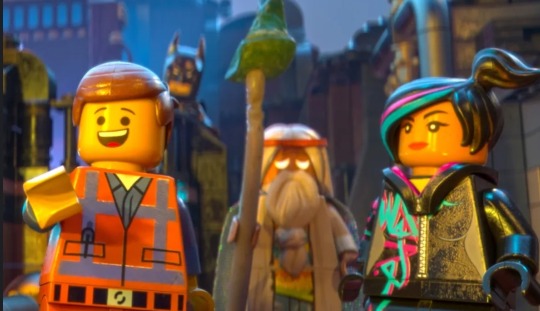
This movie sells itself, but I have seen it maybe. 40 times. And I could quote it from start to end as a kid. It's funny, has crossover characters along with the main ones (like Batman, Superman, Gandalf, Abraham Lincoln, Han Solo), lots of references, and the main message is that you're special in your own way. It's very autism coded, I think
3. Jaws
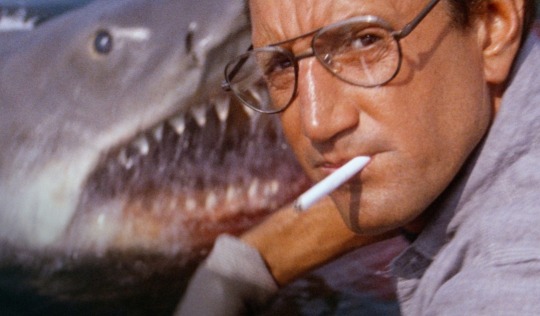
Classic man vs. monster, and it's great if you don't watch thrillers and need something "dip your toes in." While the majority of the town goes all rambo trying to kill the shark, the main characters are the opposite. The chief of police is ultimately empathetic and wants to stop more people from being hurt, Matt Hooper is a shark expert "city boy" coming along, and Quint has a boat that needs to be bigger
4. My Cousin Vinny
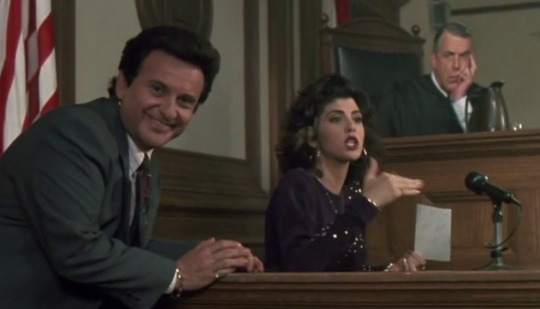
Vinny is a lawyer taking a case to prove his cousin didn't murder a clerk, but he's the worst lawyer in existence. He forgot everything he learned in law school, can't stop wearing a leather jacket to court, and his fiancée saves him most times. It has some of the most quotable lines and 10/10 I recommend to Alabamans for the southern jokes
5. Knives Out
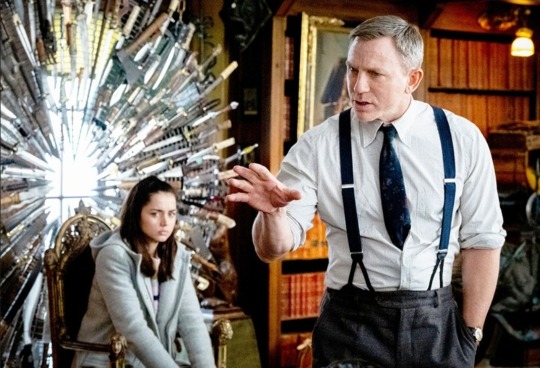
A modern "whodunit" mystery that shines the most because it's a comedy. The main character Marta is the only one who thinks she knows what happened, but she pukes every time she tells a lie. Benoit Blanc is also the most iconic detective to me and one of my favorite characters ever
6. Tommy Boy

This has a very similar tone to My Cousin Vinny, but it's a road trip movie. After Tommy's dad dies, he and Richard (a jerk coworker) try to sell autoparts to save his company. They're the worst salesmen in existence, but ultimately are creative and pull some shenanigans (Tommy and Richard go from rivals to buddies). It's from the 90s and not very chill with the r-slur and some fat jokes, but it's ultimately a feel-good movie if that isn't a dealbreaker for you
7. Jurassic Park

Like Jaws, another classic pop culture movie. The score is so good, and they make a world full of dinosaurs have the same magic feel as the wizarding world. It's an adventure movie with great action scenes and characters. (This is a trope I love personally but) Alan Grant is a grump who doesn't like kids, but later he looks after them. Ellie Sattler is one of my favorite characters ever, and Jeff Goldblum lays on a table. Survival movies are fun 10/10
8. Joker (2019)

DROOLING OVER THE CINEMATOGRAPHY. It's such a well-made movie, and you never know entirely what's real with unreliable narrating. It makes you feel for Arthur and understand his actions while knowing he made the wrong decisions in the end. Some think it's negative for mental health representation, but it can be used as a cautionary tale for the ways mentally ill people are mistreated and how the events that led to the start of the film weren't his fault. Ultimately, I think it inspires more empathy, and it's a piece of art
9. Signs
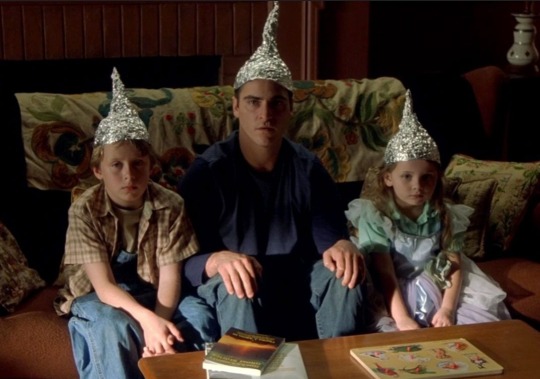
I'm a sucker for the "everything makes sense in the end" trope. A lot of people didn't like the combo of two supernaturals (the existence of God and aliens), but I don't think it ruins the movie. It centers around a family struggling with the death of their mother (or sister or wife, depending on the character), and the ex-priest dad had lost connection with his faith. He happens to find it again because of an alien invasion. Normal Tuesday
10. Arsenic and Old Lace
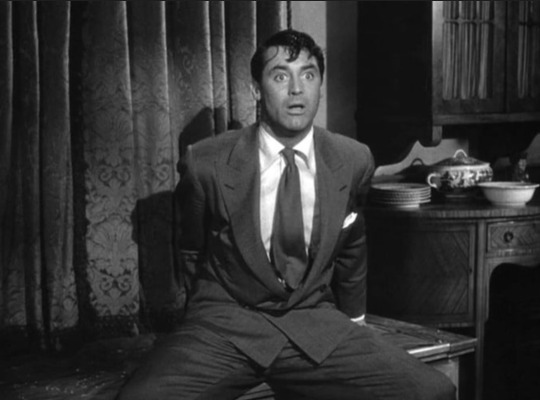
From 1944, it's a weird movie and the acting is iconic. Mortimer is trying to get to his honeymoon, but when he visits his aunts, he finds a dead body in the house. It's a comedy involving shenanigans, avoiding the police, and an uncle who thinks he's Teddy Roosevelt. (It's a bit outdated as far as mental illness goes, but Mortimer's goal is to put his family in the care of a mental institution rather than shipping them off or telling the police.) As a drama queen, I also appreciate Cary Grant being a drama queen
10 honorable mentions: Lego Batman, Napoleon Dynamite, The Goofy Movie, Clue, Psycho, Marriage Story, Into the Spiderverse, Avengers Endgame, Dead Poets Society, Muder on the Orient Express. Swag thanks for reading
#movies#movie recommendations#movie nerd#lord of the rings#the lego movie#jaws#my cousin vinny#knives out#tommy boy#jurassic park#signs#arsenic and old lace#joker#joker 2019
3 notes
·
View notes
Text
Anthony’s Stupid Daily Blog (406): Thu 27th Apr 2023
I got up at 8 in order to watch game 5 of the Lakers vs Grizzlies series from last night. I assumed that because I have the "hide scores" option ticked on the NBA app that I didn't have to worry about the game being spoiled for me but on the front page of the app there was a huge main image of the captain of the Grizzlies scoring a slam dunk under the headline "Grizzlies Triumph. Take series to 3-2". What is wrong with these dumb motherfuckers? (The NBA app that is not the Lakers, though fuck them for losing last night). Now every time I log on to the app I'm going to have to poke myself in the eyes so that I won't have the result spoiled for me. The Lakers are now 3-2 up against them so they still only have to pull one more win out of the bag before moving on to the quarter finals.
I saw on Twitter that Jerry Springer had died. I have to say I wasn't a fan of Springer's show. Mainly because it acted like it was doing some sort of service whereas of course it wasn't, it was encouraging scum to laugh at even poorer scum. I assume that Springer's rational for the show being an magnanimous endeavor was that by having these people on to air their dirty laundry in front of millions of people it would somehow act as a mirror allowing then to see what lousy people they were and would give them the kick in the tail they needed to resolve to change their ways. However my experience is that people who are arseholes rarely change. If anything being shown up to be a deadbeat Dad on national television probably wouldn't prompt the person to change, it would prompt them to come up with excuses as to why they couldn't change. Using myself as an example I decided to uit drinking over ten years ago when I realized what an arsehole and an embarrassment I was around other people, however I haven't really stopped being an arsehole, I've just removed myself from having any sort of social interaction. I don't want to be around the people who knew me doing my drinking years so they won't be able to mock me for all the embarrassing shit I did. That's not really changing that's more running and hiding. So imagine how much faster I'd run and how better I'd hide if MILLIONS of people had seen first hand what a shithead I am. If the Springer show really was a force for good then they would have done follow ups with the people who had been featured on the show in order to show that they had indeed changed their lives around but then they'd run the risk of discovering they were just as horrid as ever, their appearance on the show had done nothing to turn their lives around and the show itself was in fact just Victorian circus under a different name. A while back Jerry Seinfeld did a show called The Marriage Ref where couples / friends / co-workers would come on discuss some sort of minor quibble / argument they'd had and it would be up to the host to decide who was in the right. If the Springer show was more like this and it was done more for laughs and it wasn't portraying the guests and violent, lazy, commitment avoiding dick weasels then I might have enjoyed it more. Although I wasn't a fan of his show Springer himself always seemed really nice and he even inspired this classic Freakazoid joke so he wasn't all bad.
I had Luna today. Dad had bought her some piece of shit crafts kit from a second hand shop so I had to sit and play with it with her. Half the supplies were missing and the thing she ended up making was a bunch of lollipop sticks glued together in a square shape with a bunch of googley eyes plastered all over it which she said was a robot. Then she glued two lollipop sticks to each other to form a cross and glued a googley eye to the top of it and said that this was a helicopter. I've been struggling to come up with protagonists for a comic strip for a while but I think I might have just found them and what's best is that Luna is too young to even know what copyright law is and those models she made will probably go straight in the bin so I can literally just nick her designs and there's fuck all she can do about it. Later on Luna asked for some crumpets for her lunch. While they were in the toaster we went back into the sitting room to resume our game and I kept making Luna laugh by acting like I'd forgotten about the crumpets then running out of the room shouting CRUMPETS!!!!! Luna kept making me laugh by mimicking Lisa Simpson, quoting "If anybody needs me I'll be in my room". It's remarkable how expansive her memory is and how gifted she is at mimicry. The only impression I can do is of Shamima Begum but I've had to stop doing it because I've been warned by multiple people that it could get me killed (though I've been told by Jim Davidson that it could make me the next Jim Davidson).
I watched a couple of episodes of the latest series of Taskmaster which I haven't been keeping up with because it's coincided with the run up to my holiday. Frankie Boyle has been the highlight of the show so far. I especially liked when Jenny Eclair was talking about how she has no musical ability and even at a party she gets a nasty shock whenever people start singing Happy Birthday she gets a shock because it always takes her by surprise. Frankie chimed in with "Surely the cake gives you a clue". There was a task where Frankie was required to catch potatoes in a top hat and I was tempted to be really childish and tweet a picture of him wearing it with the caption "Another thing Frankie has stolen from Sadowitz".
I went for a run at 9pm listening to a podcast about the life and death of Edgar Allan Poe. This poor motherfucker could not catch a break. Both parents dead before he was 10, adoptive rich Dad wouldn't give him any money so he had to drop out of school, rejected from the army, spent his early writing years in relative poverty and had to beg for food, just as his writing career is taking off his wife dies, then he becomes a drunk and ends up dead in the streets of Baltimore. Well I mean he might have had it bad but at least he didn't have to press skip on his remote every five minutes to get rid of a fucking ad on YouTube.
0 notes
Text
Day 10: I think the true purpose of this game is to see how many qualifiers we can get to precede the word "self" and still understand what we're talking about
https://homestuck.com/story/1642
I don’t think anyone has said much about Calsprite. There’s not much to be said. I’m pretty sure, based on the Juju rules, that this Lil Cal probably doesn’t count as the real one - supposedly, any version of a Juju from a Doomed Timeline doesn’t count as the real thing? In any case, it’s a very mild comfort that this being isn’t a source of even more power for the already arbitrarily powerful Lord English.
Another thing that I think is interesting to note is that Dave’s use of iPhone technology marks him, in my opinion, as a poseur. While I am by no means advocating against buying from Microsoft’s competitors, but Mac vs. PC is one of those parts of my childhood, and as an actual IT Professional I’ve learned more than a little about the way that they brand themselves and the history of Apple’s struggle for market share - Apple doesn’t advertise its products as computing alternatives, or as productivity software, or whatever - Apple sells a lifestyle. Apple products are styled as the sexier, more cerebral, more artistic, more individualistic alternative to Microsoft’s products, a computer not for the Office Drone but for... well, the Hipster. Hipsters have stopped really being a thing, or at least, nobody calls themselves that any more.
Like the vast majority of subcultures, I suspect the hipster subculture has kind of been swallowed by time, its symbols expropriated by Capitalism, its center hollowed out and its aesthetics packaged for mass production, as the cynical and jaded approach to popular culture of the hipster, along with its more enthusiastic counterpart “the geek” (actually pretty well personified by John!) became more mainstream - both stereotypes are probably a part of Homestuck’s general commentary on fandom. Fandom is something I think Homestuck talks about, but I don’t think it’s something Homestuck is about in quite the same way that it’s about, say, Narratives, or Reproduction.
More after the break.
https://homestuck.com/story/1643
While Homestuck has been a story that involves some time loops, Act 4 is where it really gets off the ground as an actual Time Travel story. The thing about Time Travel stories, like the thing about Cosmic Horror Stories, is that once a story starts having Time Travel, or Cosmic Horrors in it, it’s that genre forever. This is why DND, for example, is part of a cosmic horror story, because something like 20 years ago, an adventure writer decided that there should be the Far Realm, and now it casts its sticky pall over the rest of the game’s setting.
Homestuck sidesteps this issue largely by involving all of the genres that do this to a story, and just kind of blending them all together into a genre-busting stew. Homestuck is a superhero story. Homestuck is a creation story. Homestuck is a theogony. Homestuck is a cosmic horror story. Homestuck is a time travel story. And so on and so on.
https://homestuck.com/story/1657
And so began one of the greatest partnerships in the history of Paradox Space.
Also of note is that Terezi compares Dave to fire here, not the first or the last bit of symbolism linking him to that element. It’s pretty strongly linked, in general, with The Hero, in kind of the same way that the color Red, and the Sword is in these sorts of things.
Dave fits the Classic Hero Archetype a lot better in a lot of ways than John does, and Bro has been training him for that role since birth. On a much larger scale, Lord English has decreed from his position as the overlord of Paradox Space that Dave is the Hero who should defeat him.
https://homestuck.com/story/1663
Friendship proves once again to be one of the most powerful forces in the universe, changing John’s direction, and steering him away from disaster.
https://homestuck.com/story/1667
Not much to say about this conversation, but the transition between Karkat’s explanation of the Veil and the beginning of [S]Jack: Ascend is smooth as fuck.
https://homestuck.com/story/1670
Our very first self-indulgent author self-insert; the Fourth Wall is explicitly identified as a Fenestrated Plane. 1 Point for the Narrative Contrivance hypothesis.
https://homestuck.com/story/1692
Dave actually does care immensely. Not only does he spend a ton of his time being overshadowed by cooler more powerful men like Bro, and John, now Dave even has to spend his time being overshadowed by cooler versions of himself - and that goes in both directions - both Davesprite and Dave seem to think that the other is the more real, more cool Dave!
https://homestuck.com/story/1710
As a Light Player, Rose is preoccupied with Meaning. She sees it everywhere, and she certainly sees where it is not (at least when she is not Miserable with a capital M). Meaning and Value - Fortune - is not intrinsic to this item, but it is instead bestowed upon it by the fact that Rose loves it, and by the work that Rose put into it. The Rabbit is a labor of love and a treasured belonging, and the Love in the Rabbit is the Light that the Seer Sees.
https://homestuck.com/story/1714
I’m pretty sure that John and Kanaya only talk to each other about twice in all of Homestuck, which is a bit of a shame! John and Karkat are really a lot more alike each other than either of them is comfortable admitting (which I think is probably why Dave is attracted to Karkat). By the transitive law of friendship, it seems to me that John and Kanaya would probably be pretty good friends. On the subject of the other diagonal line in the quadrangle of friendship, I wonder if Rose and Karkat talk to each other pretty much ever?
https://homestuck.com/story/1715
The clear indication here is a parallel between Dave and Sollux, but like a lot of things that probably didn’t go as intended with the Trolls, nothing much ends up materializing from it. I suppose that by fucking off to do nothing for the rest of the adventure, Sollux gets to live Dave’s dream for him, so there’s that.
https://homestuck.com/story/1720
Adorable. This is one of the happiest little moments in the comic.
So often, characters are cut off from one another by moments. They just miss each other, or literally can’t understand each other because of supernatural shenanigans, or can’t communicate with each other on screen because of the way that communication can’t happen unmediated in Homestuck.
And even when they can talk to each other, often the awkwardness and pain of communicating with other people, of trying to get them to understand you the way you actually are, instead of only seeing you one certain way, is too great, and communication proves impossible.
But here, Rose and Dave don’t need words to hang out.
They shut up and jam.
(It’s also incredibly sweet that Rose‘s actual in-person esteem of Dave is so great that she cannot restrain her own thought process. For all her joshing, she really does think Dave is cool.)
https://homestuck.com/story/1722
Also incredibly sweet that Rose’s first order of business as soon as they’re done playing around is to destroy that goddamn puppet.
https://homestuck.com/story/1754
Just missed him.
https://homestuck.com/story/1775
I wish not to contemplate the implication that Homestuck Sprite Mode Legs are actually wafer thin.
https://homestuck.com/story/1812
Nearly as soon as Rose has awoken and absorbed herself from the Doomed Timeline, she gets down to business alchemizing a lot of dangerous and powerful artifacts in preparation to fuck shit up. I’ve never thought about it much before, but I think it’s not hard to say that the memories she absorbed from the other timeline cause Rose to embrace her more reckless and less charitable side. She comments on her own dangerous pursuit of power, and then immediately ignores that train of thought.
https://homestuck.com/story/1836
Dave sure is fixated on bottoms.
https://homestuck.com/story/1852
Note to self. Come back to this.
So far, the only thing of note is the number 12, a portent related to the victors of Homestuck, if only coincidentally.
https://homestuck.com/story/1857
Dave’s sincerity senses are tingling. Maybe it’s an instinct since he and Roxy are pretty similar people, maybe it’s just because Dave himself is not nearly as insincere as he wants to be.
Dave’s anxiety about being watched is also probably best exemplified by his insistence on hiding his eyes behind glasses.
https://homestuck.com/story/1887
Adorable!
I wonder if Andrew already had the sprite designs for these squirts, and their names picked out at this time.
The hair and accessories are certainly correct.
https://homestuck.com/story/1895
Before I get too much further into this sequence, I’d like to pause and take a second to just appreciate this prose. The style is captivating.
The shipping pun is also pretty good.
https://homestuck.com/story/1903
BladeKindEyeWear has already done a pretty good job explaining what the Ultimate Riddle is, so I won’t belabor it too much more than he has here. The Ultimate Riddle itself is, “What Will You Do?” And the answer to it is, “Do What You Will.”
Do What You Will isn’t just the inscription on AURYN, it’s also an extremely old phrase intended for spiritual enlightenment, historically first formulated by Saint Augustine in his Sermon On Love, where he puts it thusly, “Love, and Do What You Will.” The Love that Augustine is talking about is not Romantic Love or even familial love, but Universal Unconditional Love - goodwill toward everyone and everything, to have one’s Heart’s Desire be that everyone should flourish and be happy.
Another formulation, the Wiccan Rede is, “An It Harm None, Do What Ye Will,” perhaps a more detached, declaration. In either case, the Will here is not talking about merely chasing simple wants, but an invitation to follow one’s true will, not to respond to simple passions, but to take voluntary action in accordance with who one is as a person.
https://homestuck.com/story/1905
threatening.............
https://homestuck.com/story/1922
Jake Harley begins a life of serial abandonment.
https://homestuck.com/story/1930
I really should have brought this up first when Rose and Davesprite went back into time, but this is about the time Homestuck starts to get lousy with all kinds of alternate selves, Dream Selves, Doomed Selves, and so on and so on, and from a narrative frame of reference, they’re actually all literally the same guy - the actions of one version of a character inform us about all versions of that character.
More on that later.
https://homestuck.com/story/1931
More Roleplaying. John has a wild imagine spot.
https://homestuck.com/story/1934
Dave stares at the blood on his hands, and contemplates his death for a long time.
https://homestuck.com/story/1936
Some immediate foreshadowing in here. Jade, I’m pretty sure, is one of the few people in Tavros’ life who shows him some genuine unconditional friendliness, so it’s no wonder that he latches onto her.
The way he does is still pretty creepy though.
https://homestuck.com/story/1940
As long as I’m mostly focusing on the emotional dimension of Homestuck, the two major emotional beats in this Flash are the Sovereign Slayer slaughtering WV’s army, revealing the source of his self-loathing and trauma, and the death of Jade’s Dream Self.
The death of her Dream Self is not nearly the beginning of Jade’s Trauma Conga Line, but it’s definitely the first in the chain of events that leads her to finally snap out of her learned helplessness and blind optimism, and to start taking her fate into her own hands. She’s been so sure of her destiny up to this point, and now things are finally starting to get out of hand.
Also, I choose to believe that the bizarre Squiddles interlude is the first moment that the Dark Gods make contact with Jade’s psyche. They know she’s about to die, and they’re starting to communicate with her.
Anyway, that’s all for today.
Yesterday’s cough turned out to be post-viral infection, since I had Covid the week of the 11th, so for now this is Cam signing off, Medicated, and Not Alone.
7 notes
·
View notes
Text
Alright
I finished HLITF season 1 for Kaga and I SWEAR TO ALL 12 ZODIAC GODS
VOLTAGE. PEAKED!!!! AT KAGA’S SEQUEL
THIS STORY IS AN ABSOLUTE

(Early warning: minor/major spoilers and a lot of rants/fangirling/thirst etc etc all bec I just absolutely love this story and I feel the need to share this love with everyone. Also, I keep seeing everyone hating on MC in this but I actually really liked her here and so I MUST defend her)
Okay
First of all look. loOK. LOOK AT THESE CGS!!!!
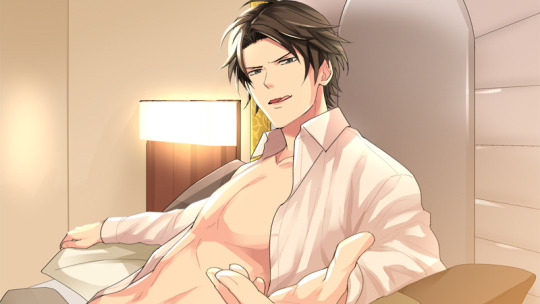
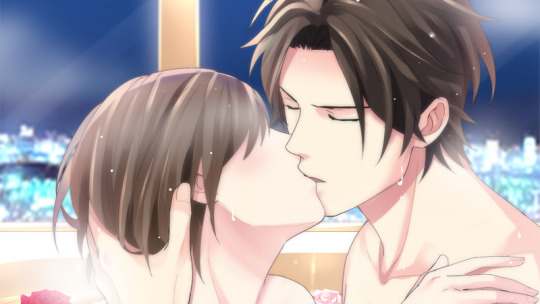
CAN YOU BELIEVE WE GET A HOT AND SEXY KAGA CG, A LITERALLY STEAMY ROMANTIC CG AND A BOMB AF STORY ALL FOR $3 EYE-
And oh my huedhaut dont even get me started on the story. It was absolutely on point. It has everything a HLITF story promises to have:
justice in the eyes of our straightlaced MC vs the PSD ✔️
Conflict btwn Kaga and MC precisely because of that ✔️
Our girl pulling a vanishing act bec she refused to compromise her values ✔️
the refusal of each side to back down and their love for each other TEARING THEM APART INSIDE ✔️
OUR GIRL SHOWING OFF HOW INSIGHTFUL SHE REALLY IS AND FINDING A SOLID AF LEAD ✔️
MC’S GROWTH in finding a somewhat compromise between her principles and what is required of her as a PSD detective ✔️
And of course, my absolute favourite: ANGSTY ANGSTY MY-WORLD-IS-ENDING-BECAUSE-MY-MC-IS-IN-DANGER-ANGSTY KAGA ✔️
Okay, I need to address the one thing that everyone just hates about this story en masse and it’s MC. Personally, I dont agree with her about the some parts, especially the interrogation because she did hinder an investigation and in law enforcement that is one big No-No but I do see where she’s coming from, especially with the surveillance thing and the whole copping out and literally running away to the countryside. I saw reviews abt her being completely naive but seriously, put yourself in the position of the one being spied. She’s so against it because to the suspect, what they’re doing could be harmful to him, especially so if he was innocent. I think as a person, she believes in the more publically-accepted justice - the kind of justice that everyone wants but is really very difficult to obtain.
And this is where we get to the beauty of this story. As per their MO, the PSD is ready to do whatever it takes to get the culprit even it means breaking the law. They’re desperate to get the culprit because people are actually getting hurt and the longer this guy gives them the slip, the more people are going to get hurt. Even in MSB, its been established that to the PSD, the end ALWAYS justify the means and they dont give a shit if they look like criminals for it. So this is where the conflict arises between MC and the PSD guys. For the PSD, there’s an opportunity where they might get the culprit but its illegal and for MC, what the PSD wants to do is too risky for something only based on suspicion; she wants to stay on the legal path but she has no lead whatsoever and time is not on either side. People dont seem to realise the weight of MC’s viewpoint and have a tendency to think of ‘officers doing something illegal’ as something as light as jaywalking or smt. No, these institutions have a wide reach and one misstep could bring harmful repercussions onto countless innocent people not to mention the implications of their actions on their integrity as an institution of the law and the integrity of the entire justice system. However, the PSD’s side is a lot more true to reality albeit in more complex situations: their duty beyond all else is to prevent crime and there are times when there really seems to be no way. I’ve been working in law for the past few years and this is a classic dilemma that has been simplified but quite well executed in this context. Justice is not as clear cut as the right way, the right end. The law may simply be black words on white paper but different circumstances dye it with their own colours. This is where MC is lacking. She’s like a freshman at law school - someone who truly believes in the importance of justice but actually has little idea what that actually entails. She is not entirely naive but more in a sense that she’s never been confronted with these kind of complex high-stakes situations (she worked in a police box before this for Ichthys’s sake) and that inexperience disables her from seeing and evaluating the entire situation from the PSD’s pov. For her, its like playing poker for the first time and she’s already betting with the million dollar chips.
The second thing I REALLY must defend her in is the whole quitting from the academy. For the love of Zyglavis, she did NOT run away just because Kaga told her she’s not suited for PSD, it was just the trigger. Lemme put it in a different scenario (btw this scenario is not meant to mirror the situation, its only meant to evoke how MC felt in the story) Imagine you live in a city and you and your significant other are living together. A pandemic has struck your city but everyone refuses to wear a mask and the government is even encouraging people not to wear a mask. You know that wearing a mask slows down the spread of the virus and you are trying to convince people to wear one but they just ignore you. The number of cases is dropping and people think its because they dont wear masks unlike other cities but you know that people should still wear masks or the numbers might spike. So you try to convince everyone to wear a mask and people start berating you for being so stupid as to believe that masks will slow down the spread of the virus when the numbers are dropping without the city wearing them. You go home and your significant other berates you for forcing other people to wear a mask and says ‘since you wanna wear a mask so badly, get out of my house and move out of town’ That’s what it felt like for MC: the absolute frustration + sadness from the rejection of what she truly believes in by the people she’s surrounded by. Time and time again in the story, she’s confronted with the fact that the justice she believes in is not the justice PSD serves. For someone who is working towards joining the PSD, that has to be killing her inside every time. It just serves as a reminder that she is not suited for PSD nor is she what PSD wants in a detective, something she has been struggling with since MS1 but she perseveres perhaps because of her dream to become a detective or because of her aspirations to someday be Kaga’s equal or at least be someone he considers he can rely on. I really believe it’s the second one, after all, it was his rejection of her that really broke her inside and finally convinced her to quit. That’s why if you buy the ending set, you’ll see in the extra stories that Kaga gets extremely angry AT HIMSELF that MC quit the academy. He knows that our persistent Kappa doesnt give up so easily, not even when he scolded her for ruining his interrogation. Its because all these factors built up and he was the one to push her over her limit. So yes, our girl is not fragile yall. She’s just been through so much and I honestly dont blame her for leaving like one order of R&R for our MC here, she deserves it thanks.
Okay, I need to end this soon cause its starting to get too long but what made me really love her here is the whole LIME thing. That part made love her so much because even when she quit on the academy, there’s still a fire inside her to do what it takes to achieve justice, even if it meant relying on the people she didnt agree with. Even when she was so broken inside believing that she’s not one of them, she’s not needed by them, she’s not worthy of helping them; she just wants to help!

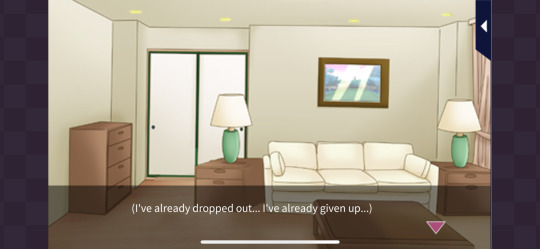
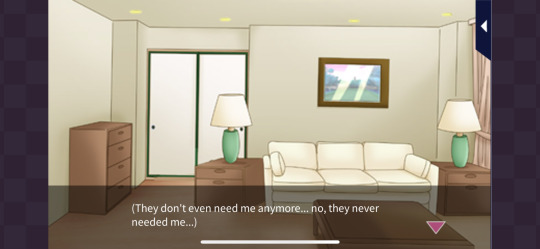

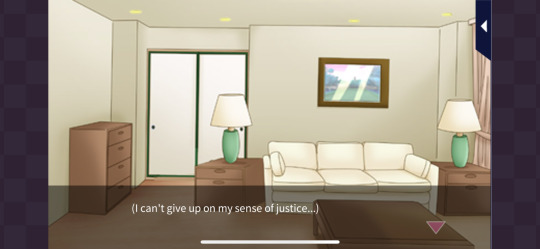
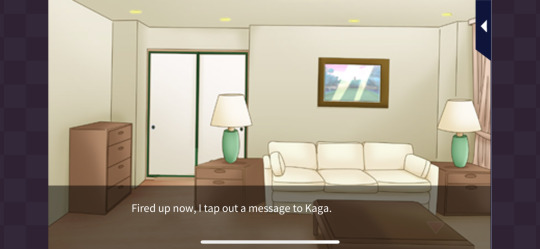
IM SO FREAKING SOFT FOR HER BECAUSE THIS GIRL WHO HAS BEEN THROUGH SO MUCH IS STILL FIGHTING IN HER OWN WAY AND JKASHFHASKJHAKSHKJHGA BRB CRYING
ALSO
THAT BLOODY PHONE CALL OH MY FREAKING SCORPIO THAT PHONE CALL. I died when he told her that quitting is not an excuse to leave his side. THESE TWO EYE-
Okay, you have to read that phone call scene from both sides because then you’ll see how much these two are being stubborn because they still dont accept the other’s pov abt the case but at the same time how much they love and miss each other is gnawing at them inside AND THEYRE STRUGGLING TO HOLD ALL THOSE EMOTIONS BACK WHEN THEY HEAR EACH OTHERS’ VOICES OVER THE PHONE FREAKING KRIOFF TAKE THE WHEEL PLEASE
Anyways, I really enjoyed reading season 1 for Kaga, especially because of his MC - I see her actually growing from the small police box officer to a PSD cadet and the sequel, especially, shows promise in how she’s going to navigate the world of law enforcement and facing difficult choices. Our girl really decided to return to the academy without finding a proper middle ground between her values and what PSD requires of her but she showed determination to work on it so I really hope we get to see more of that in later seasons. Also, WHIPPED Kaga is my fav but soft Kaga is up there as well. MC SAYING HE SOUNDED SAD OVER THE PHONE AND HER TEARING UP I CANT. THESE TWO ARE BAD FOR MY HEART.
Okay, Im not sure what I’ll be reading next. I kinda wanna start on his season 2 but considering how amazing this season is for Kaga, Im really curious abt the other characters so I might start on them before starting any season 2s. Also, idk if I would make these long argumentative-ish essays a thing but just idk why, my brain is really good at spewing essays out when it comes to HLITF and I think its fuelled by the panic from all my unfinished work so yay
Thanks for reading!!!
#rediscovering hlitf#HLITF#Hyogo Kaga#seiji goto#hideki ishigami#ayumu shinonome#shusuke soma#her love in the force#voltage inc.#otome#voltage otome#voltage romance sims#voltage guys
17 notes
·
View notes
Text
Good Omens Headcanons: Gabriel & Beelzebub
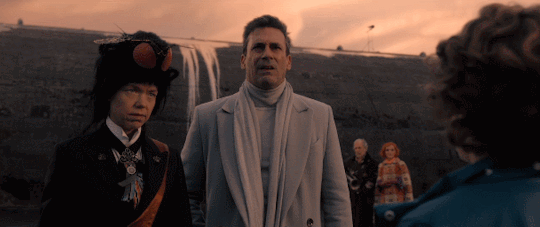
the tired bosses bonding over their employees being a pain in the ass
outside: lawful evil/lawful good
inside: both chaotic neutral
when they want to restart the Apocalypse, Gabriel arrives there first with his fabulous lightning, but he waits for Beelzebub before stepping up to the gang
ergo: just one more canon evidence that they’re 1) clearly already having some kind of relationship and 2) both drama queens and you’re in big fucking trouble now young man
the fucking looks on their faces as they walk, like ‘shit here we go again’
they’re clearly not afraid/restrained to share their feelings with each other, just look at their worried faces during their convo in ep6
why are they standing so close and why are they so intimate with each other answer me neil gaiman i want a spin off
Beelzebub being strong af and able to lift Gabriel without batting an eye is iconic already and I’d like to submit it to Fanon
enthusiastic Gabriel lifting her to snuggle because he’s a big dumb doggo
Beelzebub realizing that she does not care about her buzzing voice anymore when she’s with him
Gabriel having learned the f-word from her
I love people posting about them knowing each other in Heaven, but honestly them just meeting through horrible job experiences is so much more hysterical and relatable
them meeting on Earth to discuss and Complain™ is pretty much fanon by now and I live for it
I enjoy the idea of a Red Telephone kinda thing, but ‘there are no back channels’ so how do they know when to meet for complaining?
how about: angels radiate great love and other positive feelings, and an archangel’s radiation is so strong that Beelzebub could literally find him on the spot whenever Gabriel walks the Earth
e.g. Gabriel is running in the park when suddenly Earth opens and Beelzebub is like yo I had a super bad day and I need to Complain also you’re bloody beaming today turn it down
or, alternatively, Gabriel using a ouija board and it spelling out ‘U-S-E-A-P-H-O-N-E-D-U-M-B-A-S-S‘ (god i love this thank you op)
B teaching Gabe how to dance to Lasha Tumbai
Gabe making other angels suspicious by humming Friends on The Other Side from time to time
we all crave that reverse!AU don’t we?
- sweet sweet angel!Beelzebub with short brown hair
- but actually she’s just as savage as before
- demon!Gabriel still rocking his purple aesthetics
- bearded Jon Hamm!! black turtle neck!! scruffy gabriel
- but demon!Gabriel is just another doggo... he’s big and dumb and doesn’t talk much
- or au contraire: demon!Gabe being extremly slick and dangerously intelligent uuhhh... like a disney villain but rated r
- angel!Beelzebub is a scout/actually Isabella from Phineas & Ferb
I know that red/blue pairs are out right now because of the pastel/goth aesthetics popularity, but we know that these two, at their hearts, are a classic red/blue pair
(hot take: the book versions of the Ineffable Husbands are red/blue as well)
Gabe constantly thinking of new nicknames, e.g. Beez, Buzz, Beelz, Lord B, and Beelzebub just rolling her eyes at them
Ineffable Bureaucracy is super valid and I Do See You, but please please consider: Gabe and Beelzebub as the ultimate mlm wlw solidarity duo
exchanging styling tips
exchanging bad coping mechanisms
post-Armaggeddon’t discussions about what the fuck happened
both of them threatening people to call the other one if they’re pissed omg
‘say that again and I’ll call the hell wife!!!’ vs. ‘do you want me to call the archangel you little shit yeah i mean the big dumb one who does as i say hmm do you want that’
the crack is strong with these two, but please consider angst:
- both struggling with their identity as the leaders of their fractions because of their comforting relationship with the enemy
- Gabriel and some fucked up flower thing god I love this song
- Beelzebub gifting him flowers because she knows he loves flowers
- but it’s sad because they’re spreading some virus onto his white lilies
- angsty aesthetics: long scarf and coats, lone dark alleyways, rain
B wanting to smack her head against a wall because this archangel is so fucking dumb but also so charming and nice
Gabe seeing that this demon lord is not a bad person
her reaction to him stealing the eyes of elizabeth taylor
H E I G H T D I F F E R E N C E
#damn this is a lot#gabriel#beelzebub#headcanons#good omens#*#don't mind me screaming about these characters ffff#fic#fanfiction
496 notes
·
View notes
Text

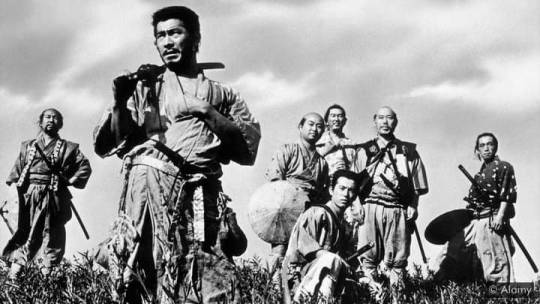
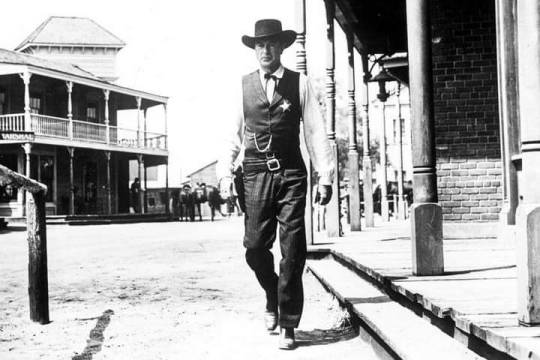
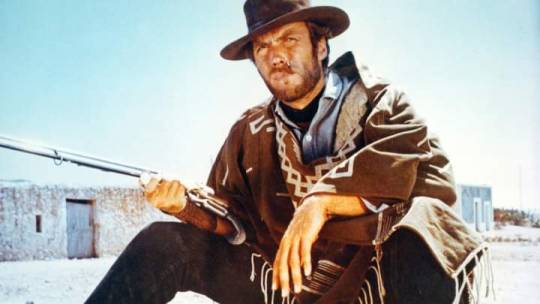
Is the “Mandalorian”, the hit Star Wars TV show from Disney +, partially based on old Westerns? The quick answer is ‘yes’. If you look at the aesthetic of it, “Mandalorian” goes back to the old roots of the original trilogy (OT) of Star Wars created by George Lucas of the late 70s and early 80s. But whereas the OT also contained elements of swashbuckling good vs evil adventure, this is more of a mixture of classic American Westerns and 60s and 70s spaghetti Westerns.
The former focused on a swashbuckling, no-nonsense hero who could take on anyone. Yet there were some exceptions to the rule such as “High Noon”. Considered one of the best classic Westerns ever made, this film is both adventurous and gritty. Another black and white film that has a similar tone is “Seven Samurai”. This Japanese film is set in Feudal Japan and like “High Noon” considered one of the crown jewels of the golden age of cinema which inspired another classic Western in American cinema: “The Magnificent Seven.”
Elements from “High Noon”, “Seven Samurai” and “Magnificent Seven” can be found in “Mandalorian”. Namely in the fourth episode where a village on a distant planet in the outer rim asks the Mandalorian and his newfound ex-rebel shock trooper ally, Cara Dune, to help them battle rogue imperials. The Mandalorian is reluctant, so is Cara Dune, but despite the threat, they agree. They are no clean heroes like Princess Leia and Luke Skywalker, and are far more complex than Han Solo from the OT. Yet, they rise to the occasion. Before long, the Mandalorian switches from a bounty hunter to a lone protector to not only the new foundling “baby Yoda” but also to those in need like the people from this remote planet.
However, the Mandalorian doesn’t become a clean-cut hero. He is not supposed to be. Mandalorian culture is more complicated than that. His unknown identity is reminiscent of Clint Eastwood’s protagonist in several spaghetti westerns. “The Man-with-no-name”, Clint Eastwood is also a bounty hunter who is not on the hunt of absolution. He just wants to make a quick buck and looking out for number one: himself. You can say the same thing about Mandalorian. Even when we get a glimpse of his face and we learn his name is Din Djarin, he still remains a mystery.
All around him are questionable characters with questionable morals. Yet this is the wild space. The rebel alliance won the war against the Galactic Empire. But at what cost? There is lawlessness running rampant in the forgotten sectors of the outer rim and part of the mid rim. The new republic doesn’t show much interest. It has its hands full dealing with imperial remnants and establishing a firm grip on the core systems and the most important sectors of the mid-rim. As a result, the part of the galaxy this series shows us is a dog-eat-dog world. It’s no wonder that there is little love for the New Republic or little care for either side, when for these forgotten peoples both the defeated Empire and the New Republic are two sides of the same coin.
The end of the galactic civil war and the rise of this lawless no man’s land is akin to the last years of the American civil war and its immediate aftermath. While the Union struggled with reconstruction in the South and keep the country together, things continued to get worse in the West until order was imposed.
There is still a lot we have yet to know of the interim years between Episode VI and Episode VII. One thing is clear though, by the time that the sequel trilogy (ST) begins, lawlessness still exists in some parts of the outer rim, but this is not as prominent as what is shown in the “Mandalorian”.
The immediate aftermath of the ST is likely to end with the galaxy celebrating the triumph of "good" over "evil". For the same forgotten people, there's little for them to expect that things will be different. Whatever gives them order and sustains them, will work for them. If the triumphant Resistance re-establishes a stronger Republican government that offers them law and order, along with security, this will mean the end of wild space as we see in the Mandalorian. But given that this is the Star Wars galaxy, it is not likely to happen.
Season 2 of the Mandalorian promises to broaden the spectrum, and introduce us to new characters and the return of old characters which will show us how wild this sector of the galaxy is.
4 notes
·
View notes
Text
Books “Read” in 2019
I am going to rank these by how much i enjoyed them vs. any actual literary quality. often well written books aren’t always the most entertaining books.
Note: i listen to many of these books at work, which is why i am able to go through so many of them in a year.
List from 2017
List from 2018
------- My Favs of the Year ----
Novels from The First Law:
Best Served Cold (#1), The Heroes(#3), Red Country(#4), Sharp Ends(#5).
A Little Hatred (#2) (Age of Madness, sequel to The First Law)
I read “The First Law Trilogy” about a year or two ago and finally got around to reading the rest of the books, just in time for a new series taking place in the same world to start up (Age of Madness) and now i am waiting like everybody else for the next two books to come out in 2020 and 2021. A Little Hatred shouldn’t be read as a stand alone, a lot of what goes on is dependent mainly on knowledge from the first trilogy and in The Heroes, then bits and pieces from Best Served Cold and Red Country. So much of your enjoyment of each book is based on what you’ve learned in other ones (character development or seemingly useless information being not so useless later).
Age of Legend (Book 4, Legend of the First Empire)
This is more-or-less an “aftermath” book where the main characters are still reeling about what happened in the previous book and are trying to make plans for what they are going to do next. I still like the characters and the world/setting it takes place in.
House of Assassins (Saga of the Forgotten Warrior, Book 2)
I’ve been waiting for the next book in this series to come out the second i finished the first book in the series. It is one of those Science fiction in the disguise of Fantasy settings and I am on the edge of my seat waiting to see how that plot/revelation comes out (I am certain that the location the story takes place is Earth, more specifically around Asia/India, but in a post-invasion apocalypse setting where nobody remembers anything prior to the invasion). I also really like how much of a badass Ashok is... i have a thing for emotionally stunted badass characters, especially when their flaws are held up to a mirror and have real consequences.
R. R. Haywood’s Worldship Humility & Extinct (Extracted, Book 3)
I love the way Haywood writes characters and dialog. I was at-first iffy about WSH, but was won over after i warmed up to the new characters.
Shades of Magic Trilogy (A Darker Shade of Magic, A Gathering of Shadows, A Conjuring of Shadows)
Solid multi-verse and magic system world. Well-written characters, some minor nitpicks on plot points, but can be easily ignored. LGBTQ rep, the gays don’t stay buried.
“Don’t you have enough [knives]?”
“You can never have too many.” [me, every time: LOL]
One of the few times when a character deserves a redemption arc, doesn’t really get one, dies, and i am perfectly fine with it because it is done well.
Assassin’s Fate (Fitz and the Fool, Book 3)
I read this one in book-book form, but i already knew most of the emotionally painful parts of the book by spoiling it to myself when it first came out a couple years ago. The main appeal is the inner monologues of the two main characters, even if like 50% of this trilogy is basically spending weeks/months trying to go from Point A to Point B, when many other books would have glossed over the details of travel.. but you can really feel the stress as they dwell in their thoughts and struggles.
Madeline Miller’s The Song of Achilles & Circe
Re-Imagining of the Iliad and The Odyssey. Focusing not on the characters of Achilles or Odysseus, but on Petroclus (Achilles’ lover) and Circe the sea nymph witch that Odysseus had an affair and child with.
The Spear of the Stars (Cycle of Galand, Book 5)
Still love Dante and Bleys... This is where they really get into the meat of world building and solving the mysteries of the Arawn Cycle (the book/bible) and peel back the layers of their reality.
Dust (Silo Book 3)
A great ending to a good series, it answers whether or not humanity can or has survived what had caused them to be locked away in the silos.
Blackthorn and Grim (Dreamer’s Pool, Tower of Thorns, Den of Wolves)
I like the premise of the books, the two main characters first seeking out revenge, but end up wanting to become better people due to magic shenanigans.... One part Fantasy, One Part Mystery, One Part Lovestory.
The Dispatcher (Audible Free Book)
I want a whole series based off this novella. It is John Scalzi so he can write a good story. I had previously read Android’s Dream by him, which it didn’t make it into my top-10 that year, but was still decent, even if the subject matter was a bit gross... The Dispatcher world is a Sci-Fi Noir, not quite Cyberpunk, where people don’t die by anything other than natural causes. The Dispatcher’s job is to kill people before something goes does wrong and the person “resets” to when they where safe and sound.
---- this is the “Above Average” Zone ----
All the Pretty Horses & Blood Meridian: Or the Evening Redness in the West
The master of bleak and depressing fiction. if regular Dark Fiction isn’t enough for you.... there is Cormac McCarthy books. Get use to the “purple prose” that fills up pages with no dialog.
The Golem and the Jinni
Supernatural world of the far past dealing with Edwardian New York and Immigration. It not only is a “fish out of water” story of the two main characters trying to fit in with society but they are among communities that are also new to America and trying to find their own place in the world. There are love subplots but most of those kind of fizzle out.
The Axe and the Throne: Bounds of Redemption Vol. 1.
“Discount First Law” book... it is lacking the dark humor that made TFL series far more entertaining. This was also the book that was prefaced by warning people about how grim and dark the setting was... Hahahaha. I still found it entertaining none the less, and hope the rest would show up on audible soon.
Black Snow, White Crow (Audible Free Book)
Another one of those short stories that should have a larger saga to its name. Fantasy Industrial Punk. It has the whole equality role reversal thing going on, it isn’t done quite as well as Left Hand of Darkness (but that book leaned onto the boring side of things).
Stephen King’s IT, Pet Semetary, and Carrie
It’s Stephen King. Classic King. Not much else to say.
Watership Down
Depressing Rabbit Book. Though I did like all the stories and mythology the rabbits had.
Bloody Acquisitions (Fred the Vampire Accountant, Book 3)
A series that is always fun to listen to. I wish the audio books were cheaper because they are rather short.
Lethal White (Cormoran Strike, Book 4)
shuddup, i don’t care if it is Rowling... i have a low-key crush on Cormoran.... he just hits that big-burly tragic-backstory man-shaped soft-spot of mine. These stories are also her “for adults” writings so... expect more racism and garbage values.
The Eye of the World (Book 1, Wheel of Time)
Classic set up to a long running series, though i am reluctant to go further as the middling books in this series are said to drag out the story too much.... It’s not as self-centered as Wizard’s First Rule and the characters are more relatable and stick to their fantasy tropes. This is the “mold” that other modern fantasy try to subvert by going “darker and edgier.”
The Exorcist
If you like the movie, read the book. There is a lot of back story that the movie wasn’t able to adapt.
---- This is the “AVERAGE, but Still Good” Zone ---
The Iliad and The Odyssey
Classics. I am still on the hunt for an unabridged version of Jason and the Argonauts story. I also have Virgil’s Aeneid in my wishlist to get too soon.
Phillipa Gregory’s Plantagonate Novels (The Lady of the Rivers, The Red Queen, White Queen, The Kingmaker’s Daughter)
Sometimes it is like reading the same book 5x in a row. other times you end up not liking the previous protagonist in a book you just finished reading because of how the current protagonist sees them from their POV.
Return of the King (Lord of the Rings, Book 3)
Read the other books last year and didn’t get around to this one for a few months.
Something Wicked This Way Comes
Fuck... I’m a janitor... why can’t i afford a house? If you liked Stephen King’s “IT” go back and read this book.
Alien Franchise Dramatizations: Alien: Sea of Sorrows, Alien: The Cold Forge (Audible Free Book) Alien III (Audible Free Book)
I don’t mind that they all are done with a full cast. Though often I end up wanting to find the actual book and listen to them with just one narrator and descriptions.
The Lion, The Witch, and the Wardrobe (Narnia, Book 1)
I would like to get the rest of the books in this series, but for books that are only 5-7 hours long they want 20$ a book for them. It needs to go into an omnibus.
Stephen Fry’s Victorian Secrets (Audible Free Book)
It’s Stephen Fry... he’s funny and a good narrator.
Wizard’s First Rule (Book 1, Sword of Truth)
I don’t like Richard. He started off alright, but even before he got tortured 2/3rds into the book, i was starting to dislike his personality. Other than that, the side characters and world are solid, but it was like taking an R-rated movie and cutting it down for TV. There is somethings that are vaguely described when i am use to harder fiction like ASoIaF, The First Law, Dresden, and McCarthy books actually describing those things.
Halloween (2018, movie novel)
Like I said when i first read the book, it would’ve benefited by a second re-write before being published. But, i like the movie and so I liked the book.
Don Quixote
Another classic read. I did find it hilarious that the Author spent a good chunk of the second book complaining about Fanfiction of his own book... in the 1600′s.
The Princess Diarist
I listened this book instead of going to see TROS. worth it.
Smoke Gets in Your eyes: And other Lessons from the Crematorium
Non-Fiction, If you want to know the ins and outs of the funeral business and get told in an informative yet non-clinical way with lots of tidbits and history facts tossed in as well as a semi-autobiographical account of the Author’s life.
--- These Books are “Alright” ---
Frank L. Baum’s Wizard of Oz books
I ligit got into an argument with a 70yo man in a comic book shop about how Canon the other Oz books were post Baum’s death. He was looking for Oz comic books and I brought up reading the first 14 books, and he’s like “There’s over 100 of them” and i was all “but all those are written by somebody else.” and he got all “they are still canon...”
The Hunchback of Notre Dame
If you want to know about the In//cel ideology in a classic literary form, this fits the bill. So much man pain.
A Christmas Carol (Tim Curry) (Audible Free Book)
Tim Curry, guys.....
The Poetic Edda (Norse God Mythology)
I listened this book twice. I bought two Edda books thinking I’d get some extra content, but no... same book just different production teams and readers. Returned the one with the worst translation.
Treasure Island (Audible Free Book, dramatization)
I need to read the actual book sometime, but i did like the cast and thought they did a good job.
Wally Roux, Quantum Mechanic (Audible Free Book)
A YA coming of age story about diversity and acceptance... with wacky science fiction.
Carmilla (Audible Free Book, dramatization)
The vampire before Dracula. Victorian Lesbian love story.
Even Tree Nymphs get the Blues (Audible Free Book)
A novella from one of those “love on the Bayou” romance series with supernatural creatures. Could practically take place in the same world of either True Blood, Dresden, or Fred the Vampire Accountant.
Mystwick School of Musicraft (Audible Free Book)
Harry Potter lite. For 10yo girls.
A Grown-up’s Guide to Dinosaurs (Audible Free Book)
I like dinosaurs.
Rivals! Frenemies Who Changed the World (Audible Free Book, Dramatization)
Interesting way on telling us about the Fossil Wars and Puma vs. Adidas.
True-Crime from Audible: Body of Proof (Audible Free Book), Midnight Son (Audible Free Book), The Demon Next Door (Audible Free Book), Killer By Nature (Audible Free Book)
Why is True-Crime or YA fiction the only halfway-decent things Audible is giving us? But yeah, these are basically the type of reporting that the two journalists from Halloween were trying to do. Where they go around and gather up information about semi-famous cases and present it in a Podcast-like format.
---- Meh... ---
Camp Red Moon (Audible Free Book)
Would’ve been better if they were actually written by R. L. Stein.
More Bedtime Stories for Cynics (Audible Free Book)
No... half of these aren’t written very well.
The Darkwater Bride (Audible Free Book, Dramatization)
The setting is nice, but it is far too .... Soap Opera Dramatic.
Junk (Audible Free Book)
A cross between Alien Invasion and Zombie outbreak, read by John Waters and written as if it was a bad version of a Philip K. Dick Novel.
Rip Off!! (Audible Free Book)
Most of them are duds and boring. I don’t even remember half of them without having to look them up. The two that stood out the most for me where the “Other Darren/Bewitched” and the “Dark and Stormy Night” stories, the rest were rather garbled.
--- Garbage... ---
Dodge and Twist (Audible Free Book, Dramatization)
No, you are not being edgy or kool.
Unread:
Siege Tactics (Spells, Swords, & Stealth. Book 4)
Triumphant (Genesis Fleet, Book 3)
Earthsea (Tehanu and Tales from Earthsea, i am going to re-listen to the first three before i get to these)
Into the Wilds (Warriors, Book 1)
Pout Neuf (Audible Free Book)
House of Teeth (Audible Free Book)
Viva Durant and the Secret of the Silver Buttons (Audible Free Book)
The Other Boleyn Girl (Phillipa Gregory)
#the first law#legend of the first empire#saga of the forgotten warrior#realm of the elderlings#a darker shade of magic#the song of achilles#john scalzi#r. r. haywood#Cycle of Galand#blackthorn and grim#myu reads#long post
3 notes
·
View notes
Text
My Thoughts During: TMNT (2007)
So I haven’t watched this movie in a good long while, so let’s see if it’s as good as I remember it being! (Also I think the last time I watched it was when I was like…15? 16? My taste in movies has improved significantly since then. Also, I apologize for the excessive lols.)
· RIP Shredder, I wonder if this takes place after a certain series and that shows what happened to him.
· Nothing good ever comes from stars aligning, does it?
· Y’Aotl, craving the sweet release of death since 1007 BCE
· “I just remembered I left the stove on” lol, never noticed that
·�� “I’m not afraid of a ghost” How about a teenage mutant ninja turtle?
· RIP that dude, I can’t believe Leo just murdered him.
· Good LORD April is skinny, I’m concerned (I know it’s an art style but still)
· Oh poor Donnie, working tech support, you poor child
· “No I’m not playing hard to get, I’m telling you it’s not that kind of phone line!” Oh, poor freaking Donnie, lol.
· Lol, just put on a turtle head, everyone thinks it’s a costume, perfect Mikey
· Lol, Raph being edgy, I forgot about his Nightwatcher costume, I guess that’s one way to avoid people discovering he’s a turtle
· How does one become a better leader by isolating themselves? Like, it might be a thing that I just don’t know about, but still
· “Why skate a halfpipe when you can skate a sewer pipe?” Sanitation for one (that whole scene honestly looks awesome though)
· “Those glory days are over” Wow, they’re teenagers and they’ve already finished the best days of their lives, poor turtles
· So Leo mentioned Donnie being the one to keep things together and Splinter lectured Donnie on being there for his family, so was Donnie supposed to take over as leader while Leo was gone? IDK why but I always thought of Raph as the second in command (of course I don’t know a lot about TMNT, especially the stuff before 2007).
· You know, I just realized how deep the whole “this home has become like an empty shell” line is. From my understanding, the shell of a turtle is basically like their spine and ribs on the outside forming a protective barrier, and all the squishy internal organs are inside. After the turtle dies and all the squishy stuff decays away, you’ll be left with an empty shell. A reminder that there was once life there, but now it’s just…empty. Freaking deep.
· “I was born careful” Proceeds to break something, lol
· “Friends you choose, but never your family” Freaking foreshadowing his relationship with his siblings (if they’re biologically related IDK) and the parallels with the turtles sibling relationships, stuff that went right over 11 year old me’s head.
· “If you’re here to kill me could you make it fast?” Lol, mood
· Why are all the monsters converging on New York? Is it because of the stars? I’m guessing it’s because of the stars.
· RIP this poor guy getting beat up by Raph again, lol
· OMG, Casey is literally just wearing a hockey mask, please wear some protective gear
· “I should have stayed in law school”, lol
· “What is it, some kind of performance art? I don’t get it.” LOL, there’s so many little lines in this that I never noticed before
· “I don’t ever care about Leo anymore” Lol, fake news Raph.
· Raph, PLEASE don’t fall asleep on roof ledges, that’s terrifying
· …I have no idea how that little pendant can bring stone that was once a person to life, but oh well
· LOL, Mikey whispering “dude” in his sleep, freaking adorable
· Aww, Splinter’s got pictures of his sons on his wall
· “I have nightmares about birthday parties.” Poor Mikey, protect him from the evil children.
· Jealous of Donnie’s casual bo skills
· How on earth has no one figured out that Raph is the Nightwatcher?
· “You never said anything about monsters.” *points sword* “Ooooohhh” Lol
· Lol, they are TERRIBLE at acting casual
· Raph: *angrily eats cereal*
· LOL, Splinter was watching Gilmore Girls???
· You have to love just how different and individual they make each monster look
· “What is it?” “The roof…you know what the roof is don’t you?” Lol, me too
· I am terrified for Casey when he goes out. Someone, please buy this guy some protective gear.
· “You do know I only have a wooden bat, right?” And who’s fault is that???
· “And I thought Girl Scouts were pushy!” Trust me, they are
· *only takes pulse* “Well his vital signs seem to be ok” Donnie, please, it’s a little early for a diagnosis, you only know his heartrate.
· “It can’t be!” She says while in a room with four mutated turtle teenagers trained as ninjas by their rat father
· Another dimension? Would it happen to be Dimension X?
· Ah yes, the familiar Raph and Leo arguments, classic
· Also, Casey’s expression when Raph is yelling about the whole “following the rule book thing”, he looks so confused, like he’s thinking “Dude, you haven’t been following that rule book either, why you going off on Leo about that?”
· “So it’s like Hailey’s Comet, only monsters come out of it.” People always underestimate Mikey, it’s their mistake
· Lol, the entire Raph vs. Little Monster fight. I love it
· I’m honestly surprised the ribbons on those little dagger things Leo throws are blue, lol
· Lol, the fact that Leo just starts lecturing this random guy and the fact that Raph is just like “he’s lecturing me!”
· Lol, sassy Leo, you got to love it when Leo just starts taunting his opponents.
· The whole argument between Raph and Leo is so emotional, like every little thing that’s built up from over the years, from Leo being gone longer than expected, and him suddenly returning just comes to a head. I love it while at the same time screaming at them to stop fighting
· You know, something’s got to be said about how when Leo thinks he’s fighting some random stranger, he beats Raph, but when he knows he’s fighting his brother, he loses.
· That moment when Raph realizes he let his anger get the better of him and nearly really hurts his brother, plus the Leo’s look of barely recognizing his brother, leading to him running off. What a freaking emotional moment. When Raph runs off you can hear him breathing heavy, like he’s struggling to breathe. He’s terrified of what he could do.
· Also, RIP Leo’s swords
· Poor Raph, he’s blaming himself and probably hating himself for what happened to Leo
· Once Leo is captured, Raph steps up as leader, so why didn’t that happen when Leo went away for training? IDK
· Somebody FINALLY got Casey some armor, bless
· I love the fight outside of Winters Tower
· “That would be the swirling vortex to another world, I presume.” Sassy Donatello, got to love him
· Raph being gentle with Leo because he still regrets what happened and really does love his brothers even if he can’t always show it
· “Winters!” “Looks more like fall” I THINK I KNOW WHERE MY LOVE OF PUNS CAME FROM, LOL
· Also, Donnie’s reaction to Mikey’s pun is hilarious, that’s like how my siblings were when I started making puns all the time. (We’re not going to talk about how they forgot to make Donnie’s mouth move when he was talking to Mikey then, lol)
· “I hate to see brothers fight like this.” LOOKS AT RAPH AND LEO (but mostly Raph) DONNIE JUST CASUALLY CALLING HIS BROTHERS OUT
· Donnie slamming his staff on a guy’s toes and then saying temper temper, give me more sassy Donnie please
· Leo arming up with a case full of swords, lol
· “The thing about you immortal stone guys is that you’re immortal and…made out of stone…I sound like Mikey.” Lol
· Lol, Splinter’s having fun fighting
· Karai and random foot soldier #27 just being done with April and Casey’s arguing
· Karai foreshadowing Shredder’s return (and then another movie is never made, lol)
· Lol, Winters’ laughter about finally being able to die is me at the end of finals week
· Winters just fading into dust (and then causing Mikey to start sneezing, lol)
· So many references on that wall that Splinter has
· Yep, still love this movie
#Teenage Mutant Ninja Turtles#TMNT#TMNT 2007#Leonardo#Michelangelo#Raphael#Donatello#TMNT Leonardo#TMNT Leo#TMNT Michelangelo#TMNT Mikey#TMNT Raphael#TMNT Raph#TMNT Donatello#TMNT Donnie#TMNT April O'Neil#TMNT Casey Jones#TMNT Splinter#My thoughts#Movie thoughts
169 notes
·
View notes
Text
Some thoughts on Ted Chiang’s Exhalation (2019) - Part I
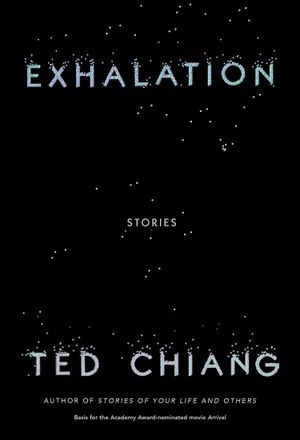
Ted Chiang is such an interesting writer to me. His stories have such a neutral, impersonal tone — “thinky” scifi, theoretical what-if experiments far from our own space and time — and yet they wrestle with such “base” human questions at their core. I was surprised at how emotional I felt after reading some of them — not during the reading but days afterwards, when I’d watch a kid play in the park and think about the main character in “The Lifecycle of Software Objects”, who’d tried very hard to give her digital-child-pet a life in a society that didn’t consider it worthy of one. There’s something about his stories that have an impact on you a long time later, like a stone dropped too clean to make an initial splash, but whose ripples keep echoing in you for a long time after.
Some of these questions are very familiar, if you’ve read his previous collections, most famously Stories of Your Life and Others: how much free will do we really have; how do we go on in a world without it; how the instruments we use (language and writing, as much as any other tech) changes the way we think, feel, and relate to each other; the purpose of science and the purpose of stories, and the lines where they cross, the spaces where they meet. Is it the actual, physical, objective-laws world that shapes who we are, or the stories we tell ourselves about it? What is an individual — a single, measly person, whose only contribution might be to write a good account of the advent of a piece of tech, not even the inventor but a bystander — to the clockwork machinery of the universe? Why are we, in the cosmic scheme of things?
Maybe it’s all the Black-Mirror/Hunger-Games type stuff that’s been so en vogue in the last decade (not to mention a certain orange-y harbinger of the apocalypse sitting in the White House, and the impending existential dread of climate change), but I found this to be a very “hopeful” collection. Optimistic may be too strong a word for it, but it grapples with these dystopian concepts and comes out the other side with the sense that just as the world grows and changes, we will find a way to grow and change, and whether time turns all our great pyramids and gods to dust we are still a species worth saving. The time machines, robots, parallel universes, and knowledge that we have no destiny except the final entropy of all living things will challenge who we are, but not the missive to be kind to one another. Even if our fate is already set, we can still choose what kind of person we will be when we meet it.
In that way, perhaps the way the narrators, men and women and nameless alike, are so detached and analytical in the way they observe the world reflects not a limitation of Chiang’s character range, but a purposeful choice by the author. They’re scientists, struggling with a crisis of faith: whether they’ve made the correct diagnosis, drawn the correct conclusion, stuck to the right course, let go at the right time. Watches, who’ve met their watchmaker. Yet what makes this collection particularly beautiful — particularly scifi — to me is how these mechanical people become not gods in the future, but simply more human.
Some thoughts on the individual stories under the cut, warning for spoilers. I’m splitting this into two parts because I'm a rambler, so this one is the first half, going up to The Lifecyle of Software Objects:
The Merchant and the Alchemist’s Gate
“Nothing erases the past. There is repentance, there is atonement, and there is forgiveness. That is all, but that is enough.”
I think it’s so fitting that a short-story collection about the meaning of stories opens with a scifi retelling of Scheherazade’s One Thousand and One Nights, the most famous short-story collection of all. It’s not just the ancient Middle East setting that’s familiar, but the structure: like those fables, this is a nested story-within-a-story, a series of morality tales told to a narrator who has his own secret not yet revealed to the audience. The scifi piece here is the time-machine gate, which, like Arrival, raises questions about the nature of time and free will — what if the future were an unchangeable scroll, the script set in ink before your birth? What does coming to know that future do to the knower?
Some, naturally, use it to enrich themselves, the classic time-travel trope of traveling to the past to give yourself the stock picks (note: buy Apple). Another underestimates the trickery of fate, while the wife uses it to rescue her future husband. But what’s interesting here is that in all these cases, no one actually changes the future; nor did they actually change the past, because the past *must* have happened for the future to happen. The characters merely make the future that was going to happen happen, much as Arrival’s Louise felt obligated “to act precisely as she knew would.”
It’s a theme that Chiang is clearly very interested in, with his most famous demonstration in Stories of Your Life / Arrival. If we already know the future, and we can’t change it no matter what we do, that implies that we don’t have free will. The narrator’s attempt then, to change his future by changing his past must fail: a harsh word spoken and a wife lost can’t be taken back, unless it was meant to be.
But the fact that the narrator tried, I think, and went to great lengths trying, is the human element of this fantasy story. That his first instinct was to try to save his wife says something about him; the fact that it was all futile in the end doesn’t negate the meaning of his attempt. I keep remembering this Vonnegut quote about Lot’s wife, who was warned not to look back at the burning city, and yet couldn’t help doing so as she fled: “but she did look back, and I love her for that, because it was so human.” The merchant didn’t do the wise thing, but he did the human thing — isn’t that the part that hurts?
The one issue I had with this story is that I’m always completely frustrated by time-travel-paradox stories — it doesn’t make sense to me that a universe wouldn’t branch off, so to speak, the moment you step back in time, so I don’t understand *why* both our past and future can’t be changed. I had the same issue with Arrival, where I couldn’t explain to myself why Louise HAD to walk the future she saw. (It doesn’t help that I’ve been watching a lot of Future Man, which has a lot of fun jumping around and sticking its fingers up the timey-wimey stuff.) But I also believe that the technical puzzle really isn’t the point of this story — accepting the premise that the past and future are unchangeable even if we can see them, the idea is that we still have to live them anyways, and it’s through those experiences that we change, grow, become different people. If the merchant hadn’t tried to rescue his wife, would he have found his atonement at the end? Or are there things we have to do anyways, even if we already know the answer?
Exhalation
“But in truth the source of life is a difference in air pressure, the flow of air from spaces where it is thick to those where it is thin.”
A slim little story, with a steampunk texture and some lovely little flourishes of prose in between extremely in-depth explanations of what I can only describe as “mechanical stuff” (you can see the technical writer in Chiang here — he really likes describing machinery). But the thing I really like about his work is that even as he’s a geek fascinated by the technology itself, he’s even more interested in its impact on the people and societies that find themselves confronting it. “How the world works” affects how people think about themselves, and that philosophical bent gives his stories more depth than “wouldn’t it be cool if…” thought experiments to me.
On the one level, “air” here could be a direct substitution for “energy”, where the second law of thermodynamics states that the entropy of an isolated system can only go up, never down. Every breath we take adds another little bit of disorder into the universe. That makes sense: none of us are renewable machines, all our civilizations have finite lifespans, and the way we’re treating the planet doesn’t exactly bode well for at least extending what time we have. Hell, we’re literally screwing our own oxygen, and unlike the narrator’s species we don’t need the laws of physics to do it for us.
What I thought was particularly interesting, though, was reading this on a more metaphorical level. I’m stretching it here, but it’s the idea that people don’t really live on the materia itself, but on the immaterial ebbs and flows between them; that it’s the passing of thoughts, energy, love, emotion between us that keeps us alive. When that exchange dies — whether because we all became the same, or because we’ve lost interest in seeking that exchange — so too do we as a species.
Is it language that keeps us alive, or having another person hear it? Is it the having of food, or having someone with whom to share it?
What’s Expected of Us
“My message to you is this: Pretend that you have free will.”
Oh ho — I had a thought after reading this that the order of the stories in this collection is really deliberate, because this book is in tension to itself. That is, one story will set out one hypothesis/POV, and then the next will straight-up rebut it, a kind of self-conflict that reminds me both of the history of science and the way I think most conflicts occur in real life: not as wrong vs right, but as different POVs that can all be true at once without being the whole of the answer, if there is one at all.
The previous story ends with a spirited declaration that “the buildings we have erected, the art and music and verse we have composed, the very lives we’ve led: none of them could have been predicted, because none of them was inevitable.” This one states exactly the opposite: everything HAS been predicted and you have no choice at all. And unlike the first story, which had the same deterministic view, the conclusion here is not to accept fate but to fight it. (Not that you can choose whether to fight it or not - it’s all been predetermined!)
First of all, this is based on a real, ongoing debate. I was really interested in neuroscience (and in particular, its impact on ethics and law) back in college and it reminded me instantly of those experiments showing that our subconscious brain makes a decision before we become conscious of making it (see Neuroscience of free will), and I’m sure experiments like Libet’s were the inspiration behind the Predictor device here.
The fact that no one’s reacted the same way people do here is probably because we have such a strong perception of our own free will that it just seems too obviously ludicrous, and the experiments so far are nowhere near as iron-tight and replicable as the Predictor. Even so, though, think about all those factors you didn’t have control over that have such an impact on where you are today: where you were born (living at the poverty level in the U.S. still puts you at the top 14% worldwide!), your parents, your genetic temperament, much of your health and innate interests and talents. There’s a lot of that vaunted genetics-plus-environment explanation for behavior that is out of our hands, and what’s left over is all the most interesting — and hardest to define — stuff.
I’m not saying that Chiang is making a social critique here, but I think that’s what this whole collection is grappling with: “the stuff that’s left over.” Keep in mind the narrator’s two assertions at the end that will pop over and over again: the idea that civilization depends on “self-deception” — or what others might call “stories” — and that “some of you will succumb and some of you won’t, and my sending this warning won’t alter those proportions”. Because in the last story, following the narrator’s command to believe in the lie is exactly what alters them.
The Lifecycle of Software Objects
Confession: I’m rarely blown away by Chiang’s prose. It does the job but it doesn’t get me swooning over a sentence or a particularly striking piece of imagery. Reading TLoSO, the piece of fiction I kept thinking of was Philip K Dick’s Do Android Dream of Electric Sheep, a novella whose wordcraft I also thought was workmanly — and yet, I fucking love that book, and this was my favorite story in Exhalation.
I can’t fully articulate why, but it’s the one that’s stuck with me the longest, even as I think The Truth of Fact, the Truth of Feeling is more original and Anxiety is the Dizziness of Freedom is more satisfying. It’s one of the most “conventional” stories here, along with Anxiety (perhaps unsurprisingly, it’s these two that are being adapted for Hollywood) — actual characters, with actual story arcs, and things happening and people making difficult choices. It has a cinematic vision and a fully-realized world that spans decades in the lives of those characters. It even has bad guys, and an interesting conceit: what if we had these digital pets called “digients” that could learn how to talk, and play, and maybe even learn up to the level of a adolescent while looking like these adorable baby animals that you’ll never have to feed, clean, or scoop poop after? You can just “suspend” them when you’re tired of playing with them; they’re cuter than robots, less pressure than children, and less work than pets!
The length and conventionality of the narrative structure makes it easier to relate to, I think, but it’s not why I love it and keep juxtaposing it by the Philip K Dick book. Like Androids, at the heart of it I think this is a story about empathy. It’s a story about the inherent terror, sorrow, and joy of parenting, of being in charge of another life with no guardrails or handbook on how to do it. It’s about being an adult, with jobs, responsibilities, and obligations to others in constant competition with values inside yourself, and never knowing if you got that balance right.
It’s about being a parent in a society where you’re in constant negotiation with it about the value of that life: where the only worth your child has is how much money they can make someone, how intelligent they are (and therefore how much money they can make someone), how much utility they have as an academic exercise or as a sex partner. No matter how much you love your kid, the only thing the world cares about is whether they have some “use”, and this story is all about that feeling: the heartache of justifying an existence you don’t feel should need justifying. Because whether the digients are actually robots, children, pets, or replicants — that’s probably never going to be proven, in the same way we’ll never know if Deckard really is a replicant, but that’s not really what matters here. What matters is whether you choose to believe these digital-pet-things deserve to be treated like they have value, the kind of value that makes torturing them evil, discarding them cruel, and keeping promises to them matter.
Ana and Derek choose to believe. They’re one of the very few who do, and they raise their digients as children, teaching them how to read, finding them play partners, taking joy in their successes, wrestling with how to discipline their mischief. When disaster strikes — Blue Gamma goes bankrupt, Data Earth becomes obsolete, making obsolete their first-gen digients with it — they shield them from the “finances”, much as many parents do. Then they throw themselves into the only mission that matters anymore: finding a way to give them some semblance of a good life.
Hope after hope turns them down, until at last, there’s only a startup called Binary Desire, who proposes to make the digients sex bots, in the most reasonable language: they won’t be sex slaves, this is a voluntary modification to their circuits plus careful training that will make them genuinely fall in love with their chosen partner. A kind of directed puberty, if you will — after all, none of us asked for our hormones and crushes, right? How is this different from being born with the oxytocin to connect to our family, or Blue Gamma’s initial breeding of the digients to be cute and cuddly? How is it different from being born with a certain set of genes that might predispose us to like certain people — isn’t that even the whole concept of “soul mates” in the first place, an innate connection?
But there’s something so particularly awful about Binary Desire’s proposal, as nicely as they couch it as completely consensual. First of all, as Ana and Derek argue, the digients are still child-like (though this is partly because of Derek’s and especially Ana’s own protectiveness). But even if they had the consciousness and experience of full adults, it’d still feel wrong to me, and I think it’s because of this: forcing a being to remake themselves just for our own convenience feels instinctively wrong. Binary Desire’s customers could find real, living, actually-consensual partners — but they don’t want to, they’d rather pay for a bot hardwired to fall in love with them, and delude themselves that this is “ultimate sexual fulfillment” for both parties.
That’s what feels so wrong about the way the digients are treated in the society of TLoSO in general: it’s not that people are actively torturing the bots a la the Kubrick/Spielberg movie A.I., it’s just that they’re always doing whatever is most convenient for themselves. There’s no friction, no “cost” — and therefore, no weight to any of their relationships either. It’s not that they’re selfish people, any more than us fast-swiping Tinder and all those other dating apps whose entire goal was to remove friction from “the dating market” — the point is that technology has made these options available that were never there before.
What if you could push a button and make your child perfect? What if you could pay a few bucks and make someone love you forever? Binary Sense even tries to get around that by demanding the relationship be built up over months rather than a cheap-and-quick hormonal hit because people want “real” relationships not slaves — but that friction is still artificial, just like how Ana tells Derek at the beginning that it’s weirder to pretend the digients are real animals. Getting things easy, getting things without having to pay any emotional price or sacrificing anything of yourself — that cheapens you.
I think that’s the answer to Binary Desire’s question that tortures Ana: “why can nonsexual relationships with them [like yours and Derek’s] be healthy, while sexual ones can’t?” It’s not really about nonsexual vs sexual — it’s about investing in a relationship honestly, vs trying to take shortcuts. Binary Desire’s emotional training program to get the digient to fall in love is still a shortcut, just a different kind of shortcut. People are always looking for certainty, the certainty that they’ve made the right choice — certain profit, certain success, certain returns for their investment. But relationships aren’t about certainty; at every moment, you might be fucking this all up forever, but it’s that discomfort that you makes you human. It’s about knowing that you might have nothing left to show at the end of years of effort and being willing to make that effort anyway.
The people in Ana and Dereks’ society suck because they’re unwilling to take the risk that might they invest everything, and still be left with nothing. They would never give their whole heart to something, whether that thing was a person or a bot. They want the kind of relationship that you can suspend, rewind, erase, start over if you don’t like it anymore. And that’s no relationship at all.
That’s why Ana and Derek are the heroes here, or at least, as much “hero” as you can be in a Ted Chiang piece — because they do pay a price for their love for Jax and Marco and Polo. They don’t take the easy way out of suspending them even as it costs them relationships, jobs, their statuses in society. At the end, Derek even sacrifices the one thing he discovered he wanted throughout the years— his chance with Ana — to make what he hopes is the right choice for Marco. They’re not the same kind of parents at all — Ana is more protective, Derek more willing to push them, to let them struggle out of the idea that’s needed for growth — but the crucial thing is both put that duty above themselves, the moment they became “parents”: the duty to try to give them a good life.
On the one hand, you can say it’s a sickness, valuing robots that might never gain more intellectual capacity than a 10-year-old over other human beings; on the other you can say they have this kind of fundamental integrity, this will to treat them right. Because Ana promised Jax she wouldn’t suspend him, she won’t. Because Derek can sacrifice neither Marco nor Ana, he lets Marco make his own choice, and lets Ana blame him. Maybe those are all terrible choices, maybe it’s not what you’d think of as a happy life, but — being able to have empathy with something outside yourself, even if it’s a thing not a person, being the kind of person who stands by their promises and doesn’t squirrel out of the hard decisions — isn’t that the kind of life you can live with? And isn’t that all we can ask for in the end?
---
Second half coming up!
2 notes
·
View notes
Text
Types of antagonists: Creating riveting opponents
FROM: https://www.nownovel.com/blog/types-of-antagonists/
There are many types of antagonists. Sometimes in a story a primary antagonist starts out as a close ally. Characters who oppose your main character’s goals aren’t necessarily ‘bad’, yet they serve a primary function: Standing between another character and their destiny. Here are 5 types of antagonists with examples and points to remember:
1. The malevolent villain
The standard malevolent villain is particularly common in the fantasy genre, yet they appear in diverse stories. The character Iago from Shakespeare’s tragedy Othello is a classic example. Iago stokes his military superior Othello’s jealousy until Othello murders his wife, suspecting her of infidelity thanks to Iago’s lies and manipulations.
Writing a malevolent antagonist who has an appetite for destruction has pitfalls. A villain who does bad for ‘evil’s sake’ could lack development and motivations that make characters believable.
To create a believable straight-up villain:
Brainstorm reasons for their actions. Sauron in Tolkien’s Lord of the Rings cycle, for example, has lost physical form and craves restored power
Explain the origin of their corruption. Tolkien shows Sauron’s rise and fall in a prologue. Over the course of her Harry Potter series (particularly the second book), J.K. Rowling shows Lord Voldemort’s descent from being Tom Riddle to the most notorious and feared member of the wizard community
Give them vulnerabilities or weaknesses. These don’t have to be emotional or physical. They could be strategic. For example, a villain who surrounds themselves with greedy henchmen is more vulnerable to betrayal if their supporters are easily swayed by material rewards
The next type of antagonist is often surprising, as we don’t typically expect strong opposition from allies or friends:
2. The ally-antagonist
It’s particularly surprising in a story when an ally turns antagonist.
For example, in the first volume of Tolkien’s fantasy cycle, The Fellowship of the Ring, the warrior Boromir joins the main characters’ quest to destroy the One Ring. Yet Boromir disagrees with destroying it, arguing with his companions that they could use its mystical power to defeat the villain Sauron, or restore the city of Gondor. When Boromir tries to take the ring from Frodo by force, its a shocking moment where a morally complex character crosses the line from ally to antagonist.
The ally-antagonist is a useful character because they show how easy it is for a ‘good’ character to make a regrettable choice. In the wider context of Tolkien’s story, it reinforces the idea that doing good is a conscious choice and not always an easy one. It also adds secondary conflicts that illustratethe ring’s corrupting power and danger.
When writing an ally-antagonist, remember to:
Show the flaws in their personality that explain their behaviour. Boromir is headstrong and, as a warrior, used to fighting for his ideals and using force
Give them compelling motivations for their choices.Boromir thinks the ring’s dark power could be harnessed for good
Ally-antagonists add shades of grey in the ‘black and white’ of ‘good vs evil’. They show us how easily people can take destructive paths that result in negative outcomes. Some also refer to this type of antagonist as a ‘hero antagonist since they may be motivated by noble ideals. Boromir’s desire to uplift his city fits this description. The nobility or virtue of this underlying wish makes his actions more tragic, since it appears his intentions are good.
3. The interfering authority figure
The function of an antagonist, in terms of plot, is to stand between a primary character and their main goals.
An interfering authority figure is thus useful for creating challenges and complications that make life harder for your protagonist.
Depending on the interfering authority figure you create, their broader story role could be:
To show something about the nature of power and authority in your book’s society (for example, how little power people have faced with totalitarian leadership)
To show cultural values or practices that stand between your character and their goals (for example, traditionalist parents who oppose a ‘love match’ marriage in romance)
A good example of this type of antagonist is Allie’s mother in Nicholas Sparks’ romance novel The Notebook. Allie is from a wealthy family and her love interest Noah works as a labourer. Because of her class-conscious and controlling nature, Allie’s mother hides love letters from Noah to Allie.
This plot point shows how the interfering authority antagonist can make selfish or value-driven choices that get in your protagonist’s way.
Another example of an interfering authority antagonist would be a border patrol officer who delays characters. Perhaps they are a power-drunk bureaucrat and intentionally delay your protagonists just because they can. This would be a useful secondary antagonist if your characters’ primary goal at this moment is making it to a meeting or other event on time.
When writing this type of antagonist, ask:
What is their reason for interfering? In Allie’s mother’s case, it’s a controlling nature coupled with class snobbery
How will this character’s actions impact your protagonist and create complications in the way of their goal (e.g. being with their lover or making a vital meeting on time)?
4. The force of nature
One of the few types of antagonists that don’t need a clear motivation is the ‘force of nature’.
If you think of disaster novels and films, it’s the unpredictable shark that attacks in Jaws. Some call this antagonist type the ‘beast’, but it doesn’t have to be a living or sentient being. In a survival story, this antagonist could be something with as little intent or motive as a treacherous mountain range your character climbs.
This type of antagonist does not have a character arc, in the sense of (for example) a backstory explaining how they became corrupt. Yet you can still include change and vary this type of antagonist to create tension and unpredictability.
To create an interesting and gripping ‘irrational force of destruction’:
Make it unpredictable. For example, on a tough mountain ascent, where your antagonist is the environment itself, perhaps clouds roll in obstructing vision and making the going tougher
Vary the intensity of opposition. On a tricky mountain ascent, create the occasional surprise rockfall or relief-bringing plateau
Make the danger real. A shark or other antagonist is only fearful and tension-inducing if you show the repercussions of not overcoming them. Maybe someone falls; maybe someone has their leg bitten off
Although not entirely an antagonist in the sense of a separate oppoenent, a character’s ‘worse self’ is also a useful source of tension and opposition:
5. The inner saboteur
In a story where a character’s main struggle is an internal struggle (e.g. drug addiction), the protagonist and antagonist are rolled into one, in a sense. Rather than the main conflict being external, the conflict takes place within a single character.
The danger of this type of antagonistic situation is that your character’s thoughts could dominate the narration, without as much exchange with others. If your character’s main opponent is their own self, remember to:
Show destructive behaviour in action. Instead of having an addict constantly think about their addiction, show how they fight it and sometimes fail. Perhaps they might visit a street hoping to score a fix but end up empty-handed, for example
Think about the origins of their self-destructive choices.What motivated your character originally to embark on a path of self-destruction?
Include secondary antagonists who add external conflict to the mix. An addict character, for example, may have uncomfortable brushes with law enforcement or a dangerous dealer
There are many types of antagonist that bring gripping conflict and opposition to a story. Whichever type you create, make sure you realize each opponent with as much detail and thought as you would a protagonist.
Source: https://www.nownovel.com/blog/types-of-antagonists/
4 notes
·
View notes
Text

The role of the Monarchy in Rigel, Zofia and the unified Valentia
I want to start this off by saying that there will be overlapping things between all three and between different pairs of countries/ruling styles, so I tried to condense the similar things first, then slowly branch off. Of course, the biggest difference here between Rigel and Zofia vs a unified Valentia is the lack of a presiding God whom had to approve everything and directed the monarchs, giving more relevance and political power to the religious groups that served Mila and Duma.
This is based on a lot of reading I’ve done of Empires and Kingdoms run from around the Classical period to the Renaissance, as well as tidbits told to us through the SoV story (like the pilgrimage Zofian royalty takes to Mila).
It’s still a work in progress, apologies for that.
Without further delay

Index
Roles shared by all three governing bodies
Roles shared by the Zofian and Rigelian monarchs
Roles shared by Zofian and Valentian monarchs
Roles shared by Rigelian and Valentian monarchs
Role of the Zofian monarchs
Role of the Rigelian monarchs
Role of the Valentian monarchs
1 - Roles shared by all three governing bodies
› All three monarchies take care of legal punishment: they are expected to uphold the law (usually via usage of their order of Knights). From ensuring regulations are being followed to suppressing crime.
› They are to be judge and jury over squabbles nobility may have, having the final say over territory disputes, grudges, and even power struggles.
› Crime regulation is basically their duty. If crime is rampant, its likely to be blamed upon the monarchy for not doing enough or sending knights to suppress it. They’re usually right.
› Hold audiences with the people of any and all stations to hear reports on what is necessary to change or what the people demand or need.
› They are also usually judge and jury over crimes of all aspects*, by both nobles and the common folk, and will usually have final word in what the punishment will be.
› Adding to this, the monarch is the only one nobles can defer to when wrong without losing face, making their administering of justice quite important, as otherwise the fights and squabbles would go on and likely turn violent.
› As such, managing the power and territory of nobles, especially when getting out of hand like that, is duty of the monarchy as well. Control of nobles could oft be dicey should get get enough backing or should the monarch not have the respect deserved in court to manage them — it is imperative that the monarch hold the respect of their court so that they can hold troublemakers down and accountable. With enough political backing and a strong enough face, a monarch in all courts within Valentia would be capable of swiftly divesting a noble of their title and lands, which was enough power to usually keep these people in line. This does not always work, as politically powerful and unruly nobles might try to take advantage of their position to turn the climate in their favor. This is oft when battles ensued instead.
› Fully trained Knights are all officially sworn into service by the monarchy.
› Trade and price regulation is oft done by the monarchy with oversight from the merchant guild.*
› The monarchy is expected to uphold the country’s values and failure to do so means a loss of respect.
› They are fully expected to attend to all festivities and partake in them.
*Some of these were regulated by the Faithful/Devout and even Mila and Duma themselves, in these instances it will vary from the Valentian monarchs, who answered to no Gods.
2 - Roles shared by Zofian and Rigelian monarchs
› Any and all new laws had to be run through Mila or Duma before being enacted, for the monarchs are meant to be a voice of the dragons due to having some of their divine blood, not rule by themselves.
› Any and all new changes had to be brought to them as well, as well as projects for roads and even the mobilization of an army against an enemy. Usually the last wasn’t a problem.
› Choices for politically critical events like a request for aid or even a pass into the other country had to be run through the Gods: like Rudolf’s plea for supplies(398vc) or Lima II’s request for Rigelian aid to take care of a political situation with a powerful but unruly noble (366vc).
› Failure to meet the expectation of the Gods could result in no longer being seen as a viable heir to the throne, as seen with Rigel IV, who was turned down in favor of Rudolf by Duma (picked over his stronger blood).
› Due to the importance of the Gods in the court, it meant the Faithful and Devout also had a powerful political position, especially the heads, and so they would also have a hand in choice making. While they could not say final word without proof it was Duma or Mila’s will, they could most certainly influence choices within the court.
› Considered above the law, as the monarchy was the voice of the Gods. ... Provided they follow the voice of the Gods. In short, the monarchy was only legally punishable by Mila and Duma.
› Punishments of crimes against the faiths or the Gods are usually dictated by the head of the religion or the Gods themselves, and so the monarchs have no rights over that.
› The monarchy can only hold council with consent of the Gods, and before that happens the monarchy must meet with their God first and listen to their wisdom or choice. It’s very rare for them to call for council, as usually the Gods had an answer of what they wanted done.
› Note, rather than a role: Only noble blood was allowed into Knighthood in both of these countries, not commoners, it is the honor of the nobility to protect the people and lands of the crown as well as that of their House.
3 - Roles shared by Zofian and Valentian monarchs
› It is important that the heads of the monarchy partake in Harvest festivities, especially the dances and rites for a good harvest. While for the Valentian monarchy it was symbolic, for the Zofian monarchy it was pretty literal, being that their God was still alive and present.
› The monarchy is expected to offer their blessings to the coming harvests as those of divine blood.
4 - Roles shared by the Rigelian and Valentian monarchs
› The monarchy is expected to partake in festive events that are a show of strength, and it’s often expected that they win. This is especially the case with the next in line for the crown and the reigning monarch.
› The monarchy has a bigger control over foodstuff distribution than the Zofian monarchy, although a lot of this has to do with famines and rough years of low overall food supply.
5 - Role of the Zofian monarchs
› They’re expected to make pilgrimage to see Mila every year, and thus communicate with the God directly and thus earn her wisdom.
› Often times, the capacity of a Zofian monarch to be able to both enjoy themselves and run the Kingdom was seen as keeping balance between work and play, and as such they are expected to often throw banquets and entertainment for the nobility while still keeping the peace (and as you can see, Lima IV was notoriously terrible at it).
› Zofian monarchy must abide by Mila’s tenants first and foremost, and thus know of religious proceeds and attend to them with diligence. They are also expected to display kindness and understanding (Lima IV failed this in denying Rigel food).
› As a note: due to the lack of regulation of foodstuffs in Zofia, the famine hit them worse than it hit Rigel, who often had famines (even if usually shorter than three years like the one Rudolf asked for help with) and as such a system to deal with it.
6 - Role of the Rigelian monarchs
› Sometimes for events like high treason, the Rigelian monarch is expected to not only be judge and jury, but also executioner.
› At the begining of their rule, they are meant to meet with Duma, who will then tell the new ruler of his expectations of the Empire and His Will.
› Failure to not follow through with Duma’s will or appease him could result in losing the title for a ‘better suited heir’ (hence Rudolf’s incapacity to not wage war against Zofia, which was one of the things Duma wanted of him).
› Rigelian monarchy must be as physically strong as they are politically, or it will cause a loss of respect — they are chosen by Duma and must encompass His strengths.
7 - Role of the Valentian monarchs
› Not limited by the Gods, the Valentian monarchs were capable of making all their choices without the need of divine approval, giving them unprecedented power over the entire continent.
› They are to decide new trade routes, laws, traditions, food distribution and even building affairs by themselves. The term ‘saint’ for Alm comes not from him being kind or gentle, but from the fact that the first Valentian monarchs were the first people to manage duties that were before thought of as only available to the divine.
› At least, for the first monarchs, they were expected to work with the newly united faiths to try and figure out how to unite their festivities best.
› Due to their unprecedented political power, they were oft thought of to be above the law, but the first Valentian monarchs would eventually work out a system in case a future generation lost their way, as such making them the first of a long line of monarchs to have to actually abide the law instead of being considered above it (sans the word of their Gods).
› What begins as tradition due to their journeys ends up as expectation, and so future Valentians have Celica and Alm to blame for having to take time every four years to tour the entire continent and ensure its stability with their own eyes.
› Valentian monarchy can now call to council at any moment and summon their court for deliberation of events, something which could before only be done with consent of the Gods.
6 notes
·
View notes
Text
@timejourneytales sent me some great thoughts and questions. Sharing with their permission:
timejourneytales said: Like lol wow sweetie it has been a loooong time. I read some of your recent posts and again it sucks that some of the anons have turned troll on ya. Oh and this isn't a anon ask it just probably a bit too long for the ask lol. Where do I start? So many things I wanna say.... Well first the whole Fei and Mik fiasco that started the trolls. You know me I am a straight up lover of the long-haired beauties. With Feilong and who he is to be shipped with I just go with the flow because in the past you made good points on it either being Mikhail or Yoh. At first I wanted neither but then you explained how either could be good. Mikhail as you once said has this glamour to him and Yoh has this solidness to him, basically one has what the other lacks to make a perfect match for Fei. I am kind of rooting for Yoh yet sometimes have my fingers crossed for Mikhail too because the man is a goofball sometimes. But as you mentioned in a recent post it might not be what sensei has planned. And I think that is what is causing the trolls they sense that Ayano-sensei may get rid of Mikhail later and they don't want to even think of that. All you're doing is voicing you're opinions, and saying what YOU THINK is gonna go down. That is the reason why I have come to love your blog. That and how you clear things up.
Me: Aw, thank you. I get that people are passionate about the characters they love. What I still don’t get is getting angry at me for not agreeing with them. Ship away to your heart’s content, but why flip out because I refuse to get on that particular ship with you? Honestly, if we could all learn to bear dissenting opinions with a little more equanimity, the world would be a better place.
As to wanting someone for Fei, I feel pretty detached, personally. I’m very interested in Fei’s current arc because it’s so emotionally complex and unusual. I’m much more invested in seeing how that plays out. I am interested enough in him as a character to want him to have someone. I think he deserves happiness and I think it’s in his nature that happiness for him would come in the form of a life partner. Fei needs to be loved. He should be loved. All that fabulousness should not be wasted on the desert air.
timejourneytales said: But yeah I think, as fun as it may sound, Fei and Mik may not be. Because to me I feel Mik has been all chase and fling with Feilong. Yea he likes to flirt with the guy because it can throw him off and hey tactics are tactics right. Basically more of a physical attraction and interest in the hunt.
Me: I agree. And I get that on the surface, Mik presents a very sparkly option (to borrow sensei’s own word.) They are awfully pretty together. But is Mik really what Fei needs or more importantly, what Fei wants? I mean, it’s pretty much been spelled out that Fei wants a daddy figure. Not just adoration and security but a firm support from which his fabulousity can flower. I just don’t think Mik is suited to that role. They’re too much alike to make a long-term relationship work.
And back to what Fei wants: to this point in the manga, I haven’t seen any evidence that Fei is at all attracted to Mik. In fact, what I see is active dislike. To argue otherwise undercuts the sacrifice Fei is making for Asami. I see a lot of Fei fans celebrating that and wondering what Asami will think when he finds out. But if Fei is attracted to Mik, then it’s not a sacrifice, is it? Then the whole arc is shot to hell.
timejourneytales said: And also the whole thing with Akihito. Why is it so easy for people to point out that yeah Feilong rapped Aki and call him a baddie but say otherwise with Asami who did the same? I mean I am actually the same. How easy it is to overlook that Asami did what he did and be fine but when think of Fei I think how he kind of got his in Finder No Rakuin or in the one nightstand chapter with Mik.
Me: Okay, I do not want to excuse what Asami did to Aki (the rapes and the rotten things he said to wreck Aki’s confidence,) but I do think there is a difference in Asami’s motives vs Fei’s motives for raping Aki and that this is why many readers give Asami a pass.
With the understanding that this is a fantasy and that rape is bad in real life blah blah, the argument can be made that Asami did not consider what he did to Aki in chapter one as rape but rather as ravishment. And I don’t think he initially abducted Aki with the intent to rape him. I think he intended to just scare Aki off but was overcome with desire (which is the classic ravishment fantasy) and then couldn’t help himself. And he was careful to see that Aki felt pleasure and--if you read the novelization of the first chapter--even practiced aftercare. (Again, I am not excusing this behavior, just laying out the argument.)
But Fei raped Aki out of revenge. Over a long period of time. There was no desire involved, no care for what Aki might or might not feel. For Fei, Aki was an object, a means to exact his revenge and vent his anger. But for Asami, Aki was always a person, even when he was just toying with him.
HOWEVER, what Asami did was still wrong. How Asami undermined Aki’s understanding of their relationship was, IMO, even worse. Where Fei proves himself a better human being capable of growth is in understanding that what he did was wrong and apologizing. And now, against his own lingering desires--albeit grudgingly, reuniting the two.
Asami has some major ground to make up in this respect and I’m not at all sure we’re going to see him even try. (Is he even capable of understanding and acknowledging that what he did was wrong?) By that measure, Fei would come out of this story the real winner.
timejourneytales said: And I yeah I loved the omake's. Which of three would you say was your favorite? And I agree how brilliant sensei is in including the struggles of her characters in them.
Me: Yeah, I’ve said before that sure, this isn’t War and Peace, but sensei does put thought into what she’s doing, and that she can make the omakes light, fun, super sexy AND thematically relevant is no small trick.
I think the vampire one is my favorite because I love these glimpses into the soft, gooey center of Asami’s subconscious. He’s all giving and caring in his perception of himself! I wish he would put that into more open, active practice in his waking moments because Aki still ain’t getting it.
I was intrigued by the brief moment of Asami toying with the idea of fighting on the right side of the law in the hero show extra, and that leads into your last comment:
timejourneytales said: And that is a good question, in the end will Asami come to the light or Akihito to the dark. I wanna say the latter most likely because any chance at a "normal" life for a Asami is easier said than done. Especially when. You consider his "popularity" in the criminal world. Anyway that is all I wanted to say today:)
Me: And that is a very good point. It would be enormously difficult for Asami to leave the underworld and live an entirely “normal” life. However, I don’t think it would be impossible. And since he’s supposed to be this highly educated genius and everything, I would think it would be within his scope to plan for such a thing. And after what we learned about him in FnS, it would be believable that he has planned for such a thing, now that we know that a criminal lifestyle is not what he wanted and that at one point in his life, he very much wanted to live as a normal person.
Now he has a new reason to want that life: Akihito. As a smart, powerful man, I believe he could make it happen. The question is, how much has he changed in the eighteen years between FnS and now? Is he too much a prisoner of the dark? It certainly seems that the manga is leaning towards Aki merely being a light within the darkness and not a beacon to lead Asami out of it. More realistic that way, yes, but...sigh. Don’t we all, as fans, have things we know sensei will not give us?
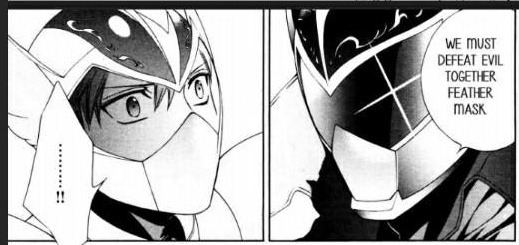
#finder series#you're my loveprize in viewfinder#finder no hyouteki#takaba akihito#asami ryuichi#Liu Fei Long
12 notes
·
View notes
Text
RECS: Check Out These 11 Shonen Series Now On Crunchyroll!

You may have noticed recently that the Crunchyroll catalog, a collection that’s like the Library of Congress but for people with really passionate opinions about One Piece, has gotten a bit bigger with the addition of some awesome Funimation titles. Particularly when it comes to the Shonen genre. Now, these titles have been released in waves, so it might be a little hard to keep up with all the major series you need to check out, so here are a few of the important ones that should keep your blood pumping and your friendships strong.
First off, we have Dragon Ball, Dragon Ball Z, and Dragon Ball GT. Without them, the entire shonen genre likely wouldn't look the same, and to this day, Goku’s constant quest to get stronger remains an exciting journey. Start from the beginning if you want to watch the aims of a franchise evolve, or just jump to Z to recapture the Toonami glory that had everyone in your middle school losing their minds back in 2000. Or, if you’re feeling daring, roll the dice on GT. It’s a fun time!

If you’ve had your fill of the Z Fighters and are looking for something a bit more emotionally complicated, check out my favorite anime Yu Yu Hakusho. Not only will you be introduced to anime's BEST OF ALL TIME boy Kuwabara, but you’ll be thrilled by Yusuke Urameshi’s struggle to balance his inner drive for violence with his humanity. Everyone who’s told you that the Dark Tournament is one of the best anime tournament arcs ever is a good friend.
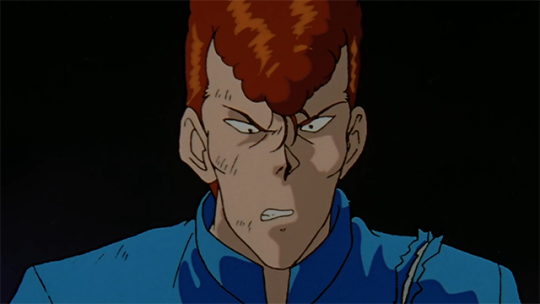
If you liked Yu Yu Hakusho’s empathetic approach to warriors but want something more modern, we have MEGALOBOX 2: NOMAD. It provides a treatise on age and loss that might be a bit surprising for those expecting something more like the first season, but there’s a reason it was one of the most acclaimed shows of 2021. Another series that earned rave reviews from around the same time was SSSS.DYNAZENON, Studio Trigger’s follow-up to the fantastic SSSS.GRIDMAN. Once again a love letter to tokusatsu, there’s enough Robot vs Kaiju action to keep you satisfied with a helping of the intrigue that you’d expect based on the prior series. Get in on the GRIDMAN universe, before the movie comes out!
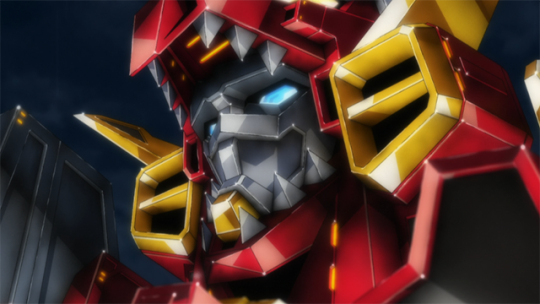
Then we have Assassination Classroom, a series that contains all the action you’d expect from such an eye-catching title mixed with an array of science fiction reveals. If you want something a bit more down-to-earth but with characters still aiming to be the best, check out The Prince of Tennis. You get to watch arrogant prodigy Ryoma emotionally grow and re-learn exactly why he loves his chosen sport, which is pretty pleasant.
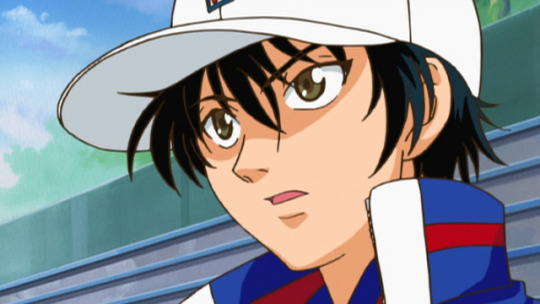
Speaking of growing as a person, or as a blend between a demon and a person, there’s Kemono Jihen. It’s a fairly underrated series with some lovely bits of animation and a nice “found family” theme. If you like the paranormal, then why not Muhyo & Roji’s Bureau of Supernatural Investigation. Crunchyroll recently got Season 2, so if you devoured the first season, get ready for even more laying down of the most integral kind of law: Ghost law.
Finally, there is The World Ends With You: The Animation. Based on the now cult classic Nintendo DS game, if you miss the feeling of having a copy in a 2007 GameStop and knowing you were about to buy a way better game than anyone else in the store, check out the adaptation.
So, what are you waiting for? Go watch upstart people try to be the greatest at, well, whatever they like doing. And if shonen anime is not your thing for some bizarre reason, check out 8 Of The Best Fantasy Anime Brought Over From Funimation. There’s also sports anime and just good anime in general. The point is, we have a lot of new and classic anime for you to check out and you’re wasting time getting to the end of this sentence instead of just clicking on that Yu Yu Hakusho link already.

Daniel Dockery is a Senior Staff Writer for Crunchyroll. Follow him on Twitter!
By: Daniel Dockery
0 notes
Text
UC 48.2 - Emmanuel, Cambridge vs Glasgow
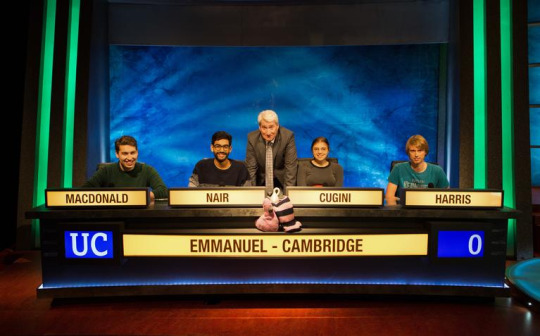
Scottish Institutions have traditionally struggled on the Challenge, and Glasgow are no different. Tonight marks only their eighth appearance on the show in the twenty four years of the Paxman Era and they’ve never made it past the second round in that time. Emmanuel are making just their sixth, but they won in 2010 under the captaincy of the legendary Alex Guttenplan who, according to a Telegraph article from April, is still at Uni, eight years later. Imagine how good he’d be now.
Last years Emmanuel side were narrowly defeated at the quarter final stages by Cambridge rivals Fitzwilliam and the year before that saw Bobby Seagull ousted by his best mate Eric Monkman in what was my most viewed post ever. Bobby has since leveraged his fifteen minutes of fame into a few more minutes, with the title of ‘BBC Maths Guru’ and a quiz book under his belt. Stephen Fry said of the book, “Monkman & Seagull show that a lot of knowledge is a wonderful thing and they do it with style, charm and endearing gusto“, while Louis Theroux describes the two of them as being to quizzing what Watson and Crick are to DNA (although I don’t think that they can be credited as discovering the activity).
He also has a new book coming out in October called ‘The Life-Changing Magic of Maths (https://amzn.to/2AdswcN), which appears to be part-biography part-ode to the majesty of numbers. (While you’re on Amazon pre-ordering his book you could also check out my round-up of his series of the Challenge, which is available here and a lot cheaper: http://amzn.eu/jdNt724)
If any of tonight’s eight contestants can get close to even one book deal following their quizzing exploits they can count that as a success, but first they’ll probably have to make it through the first round, and a few more matches besides.
Someone for whom this first round match is not the first taste of the limelight is Glasgow’s Lewis Barn. A well-trodden path for quizzers in recent years has been from UC to OC, with contestants graduating to Only Connect just as they graduate in real life. Last years Edinburgh captain Innis Carson is another who walked this route backwards, but Barn’s OC teammates Jack Bennett and Oscar Powell will be familiar faces for fans of the Challenge.
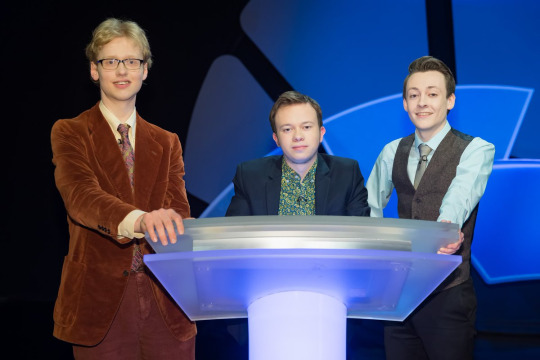
And as the youngest member of Scotland’s Quiz Team, perhaps Barn can help change the fortunes of his University, who didn’t even manage to make it to a final in the Scottish Uni Challenge golden years of 1978-84, when St Andrews and Dundee claimed the only two victories for institutions north of the border.
A law post-grad himself, he is joined by an astrophysicist, a medic and a statistician/sociologist, so they should have quite a few bases covered.
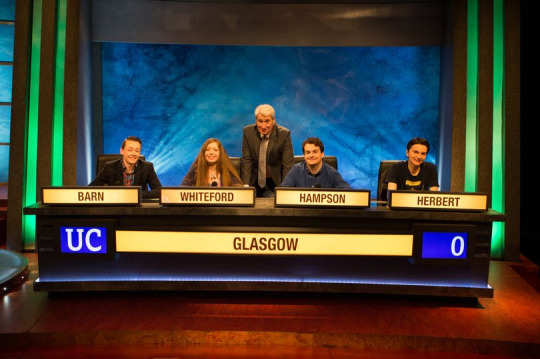
First blood goes to Glasgow, with Hampson taking the ten points after a long, labouring list of clues. Barn instantly decides he’s had enough of sitting on the wing and strains his body to get as close to his captain as possible. I worry that his rather bony shoulders will take out one of Whiteford’s eyes, but he never makes contact.
Harris, who looks a bit like Luka Modric except less witch-like, sweeps up a fairly standard biology question to get Emmanuel off the mark. Lewis ‘The Leaner’ Barn then comes in with one of the most rapid buzzes since Hapax Legomenon to reopen Glasgow’s lead. “Born in London in 1899, which filmmaker -”, “Alfred Hitchcock”. He snuggles in next to his teammates for a bonus set on Nobel Prize winning chemists, which they take two of.
MacDonald assuredly wins the first picture starter, and the Cambridge side don’t mess about on the bonuses, scoring the game’s first hat-trick to bring us back level. Emmanuel then take the lead for the first time with MacDonald’s second Ten in a row, but they struggle more with a bonus set on a Hindu Goddess.
Sometimes on The Challenge they have maths questions that are genuinely nigh-on impossible, but sometimes they have maths questions that just sound nigh-on impossible until you stop and think about them a second. The next starter falls into this second category.
Paxman describes magic squares, grids of numbers in which all of the sides add up to the same total, and asks what number would be at the centre of a 3x3 grid starting with two, and going round the outside in the clockwise direction. It sounds difficult, but when he lists all of the numbers but five, it only makes sense for that to be the answer. Of course, its not that easy to think so objectively under pressure, but Barn is up to the challenge, and brings the Glaswegians back to parity.
Emmanuel captain Cugini gets her first points of the evening with the next starter, and sinks back into her chair with such obvious delight after excitedly giving her answer of ‘discus throwing’. They then try the classic tactic of guessing Tracy Emin for a question about a female artist who sounds a bit bizarre, which succeeds, and delights Cugini once again.
I like to complain about the classical music when its on, because I think they could do interesting things with modern music rounds, so I always enjoy it when they blast a bit of pop. That being said, I don’t think many people would have found it difficult to identify Blondie, Blur, and Beck’s most well known song. Glasgow certainly had no trouble.
A question on miserable philosophers followed another MacDonald starter for Emmanuel. Cugini didn’t know, but suggested Hegel, as he was pretty miserable. Nair asserts that Schopenhauer was also very miserable, and she makes an excellent captain’s choice, going with him, and getting the five points.
The consistent trading of starter questions meant that there was rarely more than five points between the sides after an even number of them, and indeed Nair thoughtfully negs a question on mountains to bring the scores to 120-all after about fifteen minutes of relentless quizzing.
Glasgow decide that they’ve had enough of this ‘lets-cross-the-line-at-the-same-time-so-we-both-win’ malarkey and rattle off several consecutively to stretch out into the biggest lead of the contest. A lead that was partially courtesy of the easiest picture starter The Challenge has ever seen - identifying Alan Partridge from a picture of Alan Partridge literally making an ‘AHAAA!!’ face.
It was there that the match was won and lost. Had Emmanuel been quicker on the buzz for that one simple question it would have flipped the scoreline, but it was Hampson who got there first, and consequently the Scots who held a twenty five point lead at the gong.
Final Score: Emmanuel, Cam 175 - 200 Glasgow
A truly incredible match, with some stonking buzzes and more lead changes than the Le Mans 24 hours. Glasgow look like a team to beat, and Emmanuel will surely make the repechage with such a high-losing score. Only once in the past 24 years would it not have been sufficient, and that was before the turn of the century when Paxman read a lot quicker and the game had higher scores in general. So I look forward to seeing (hopefully) both teams again.
2 notes
·
View notes